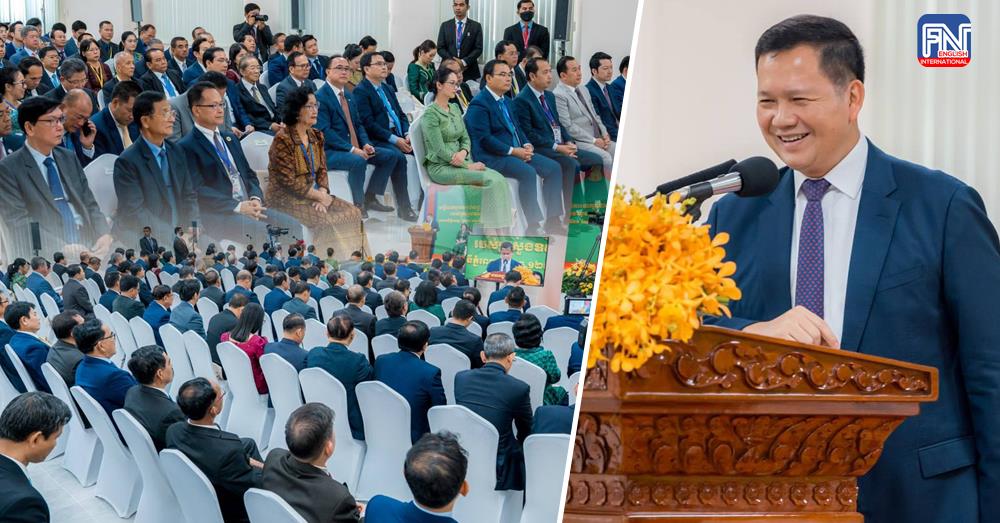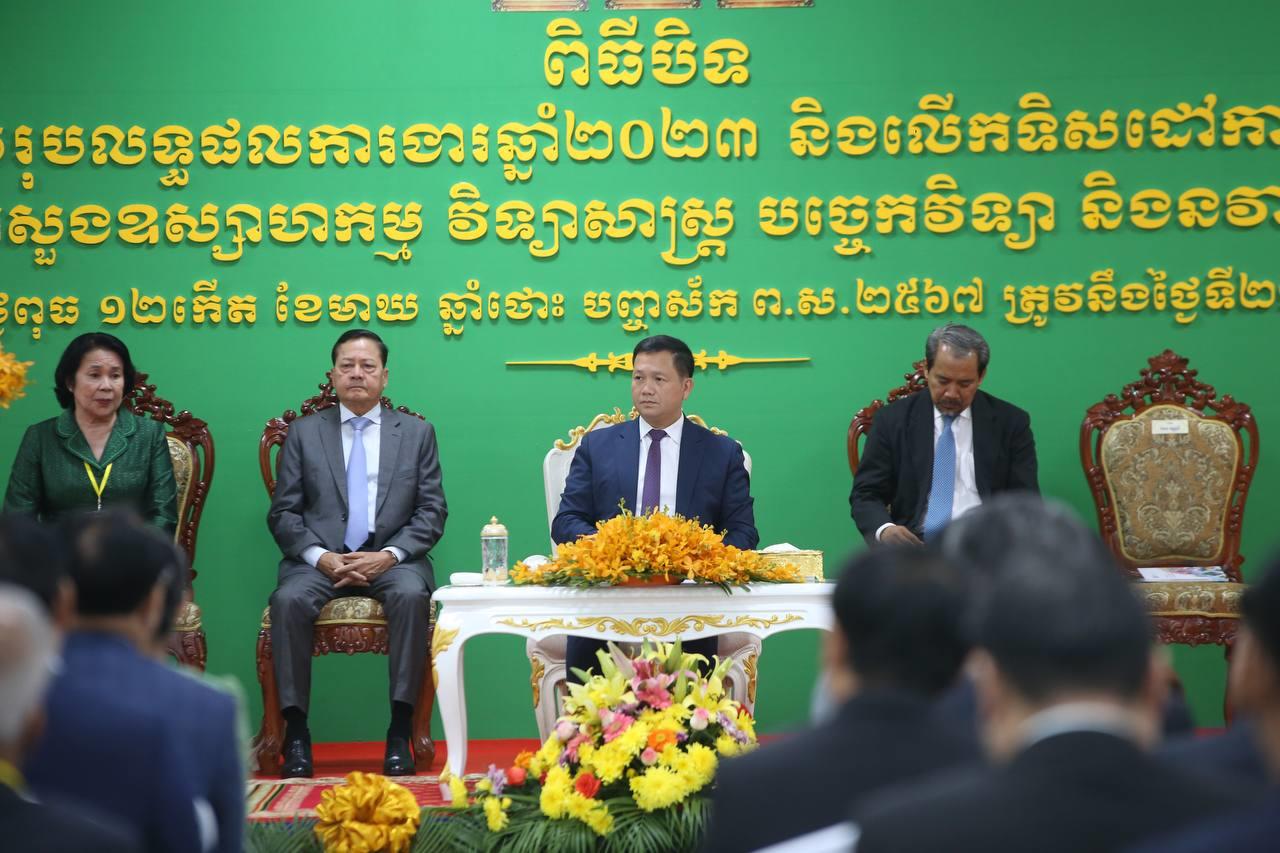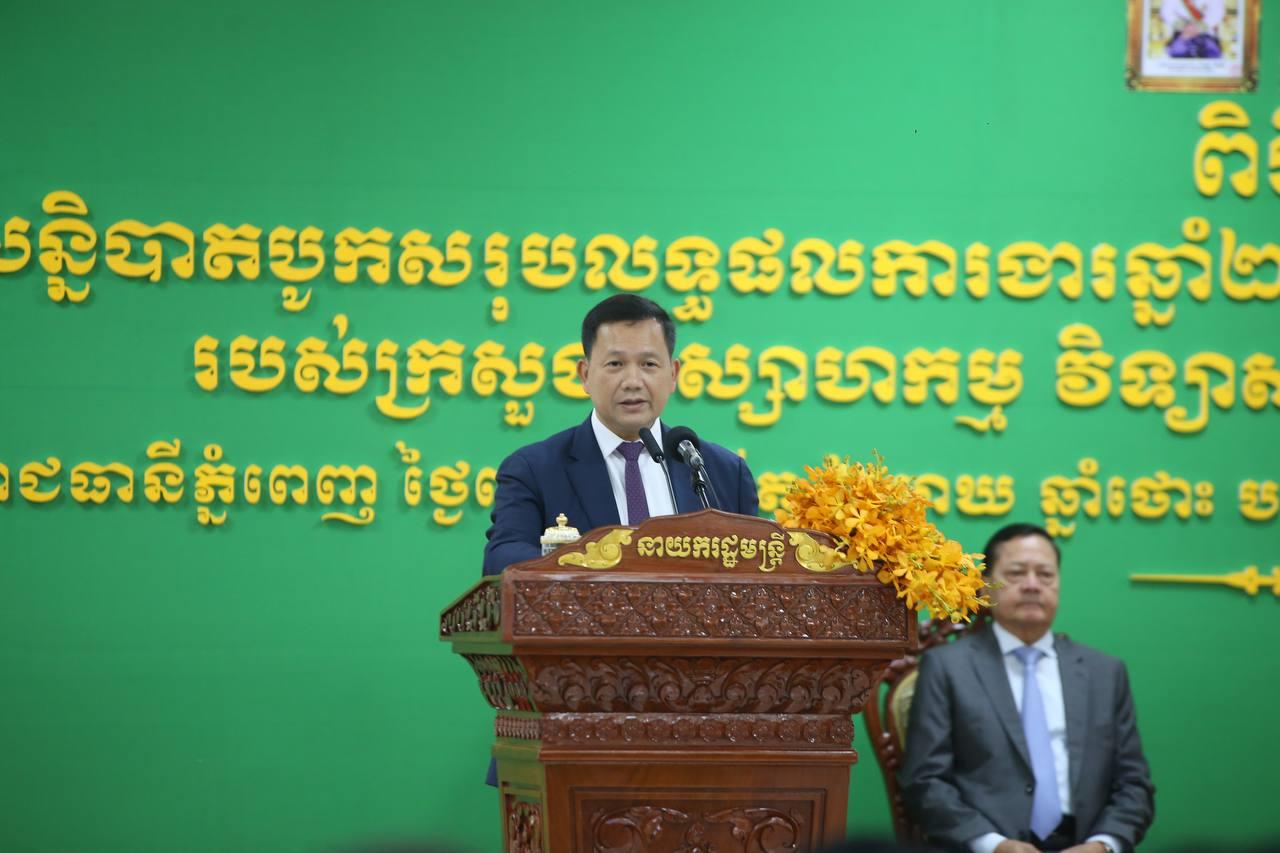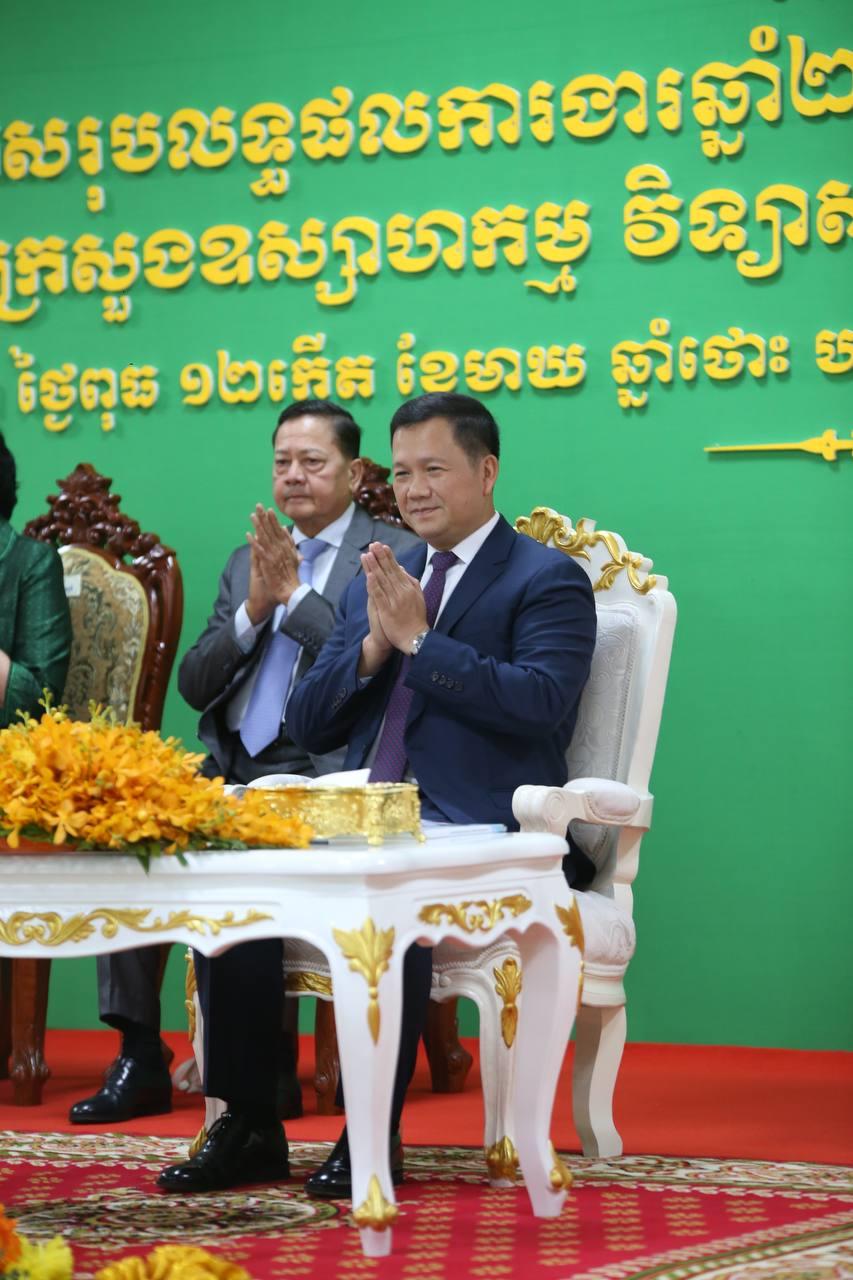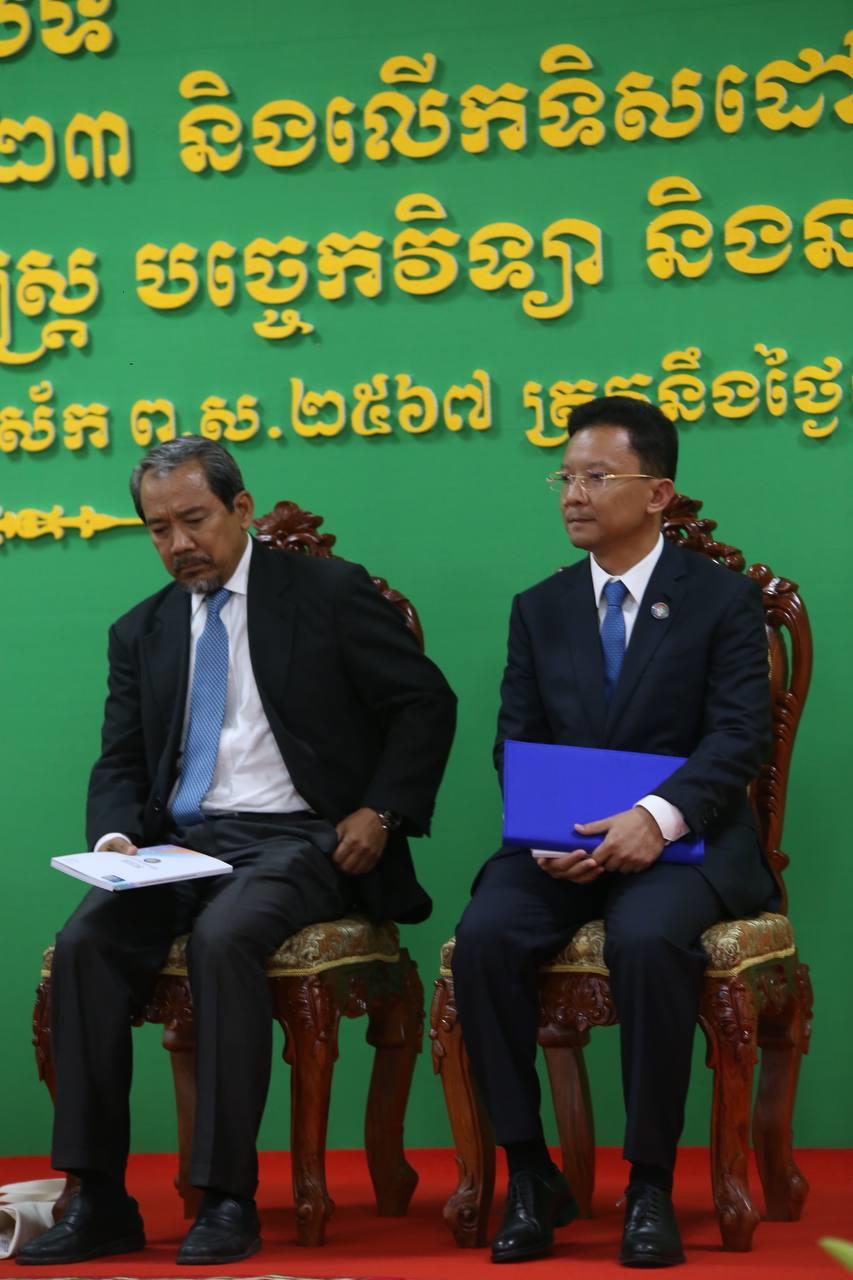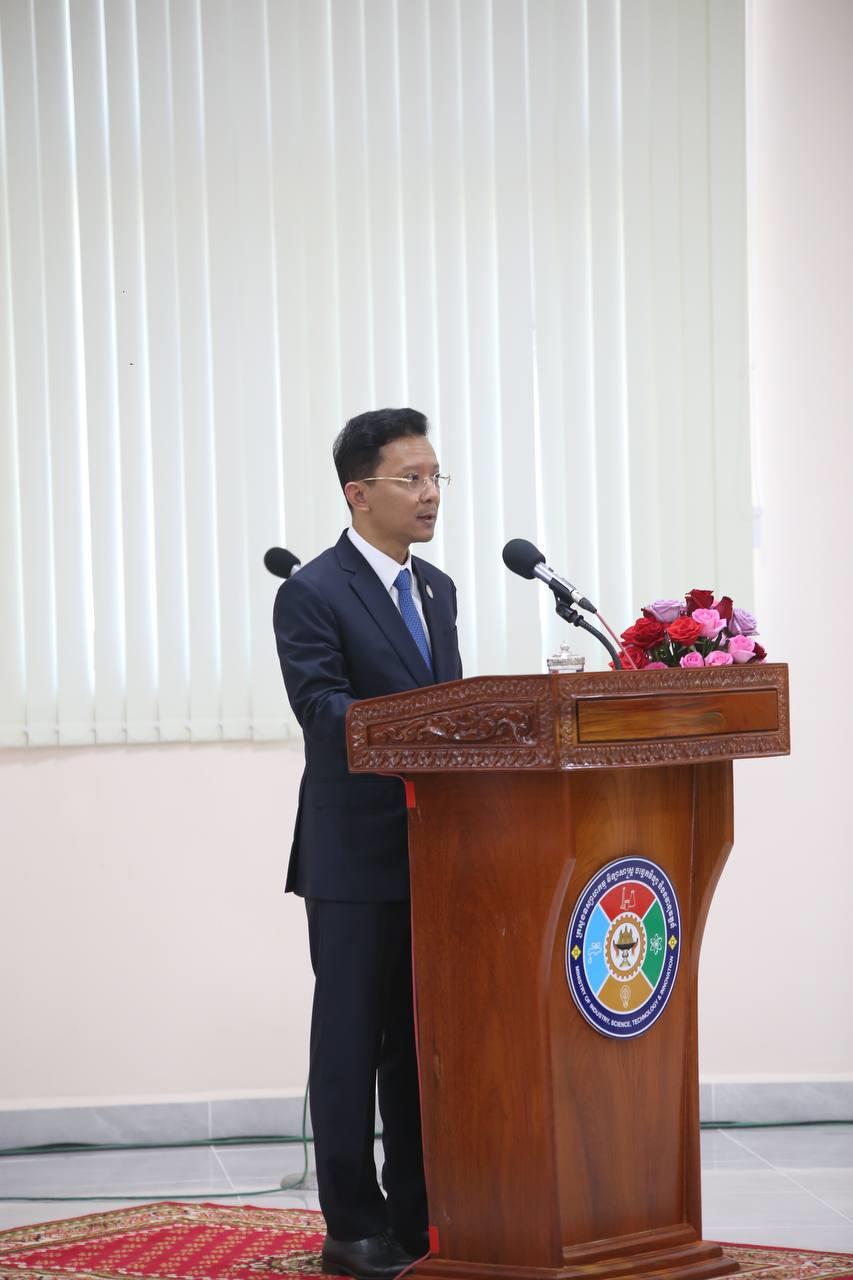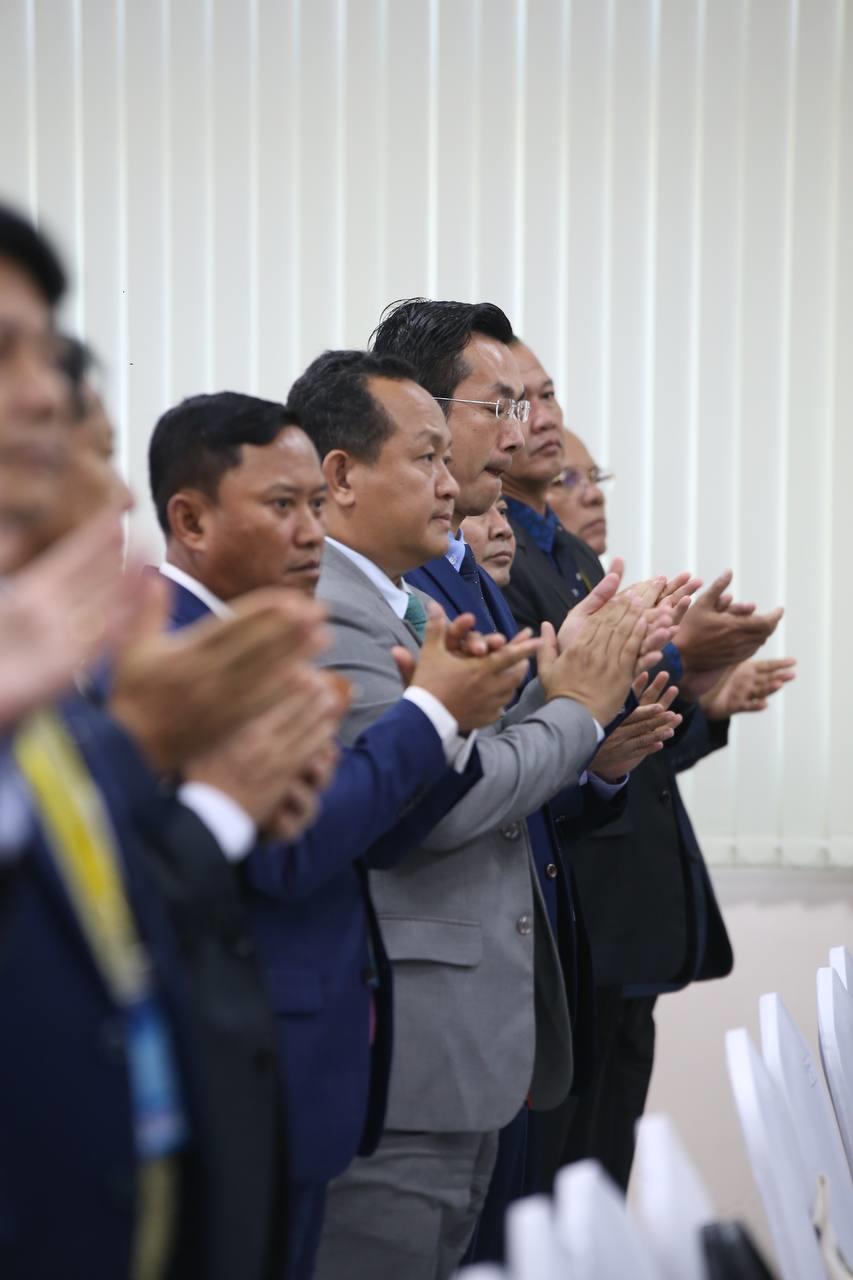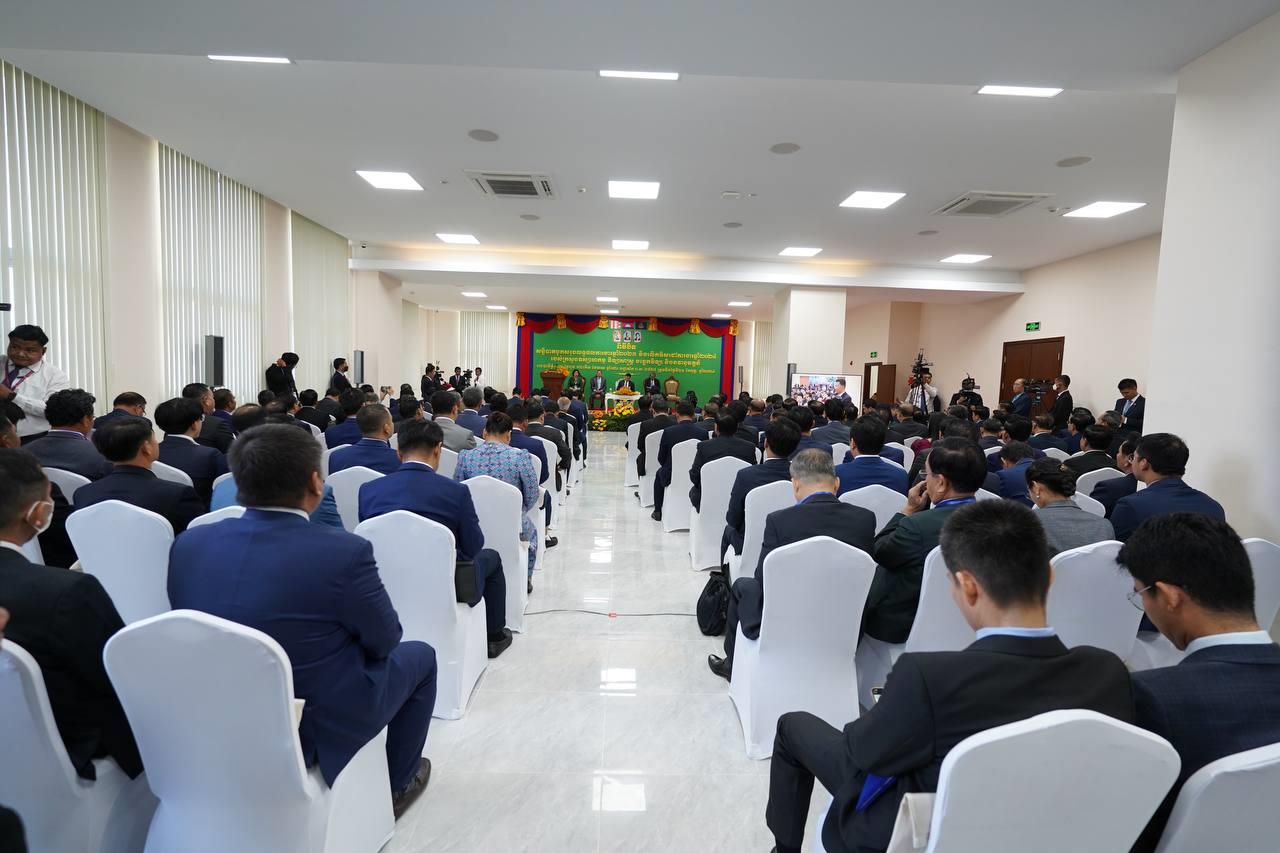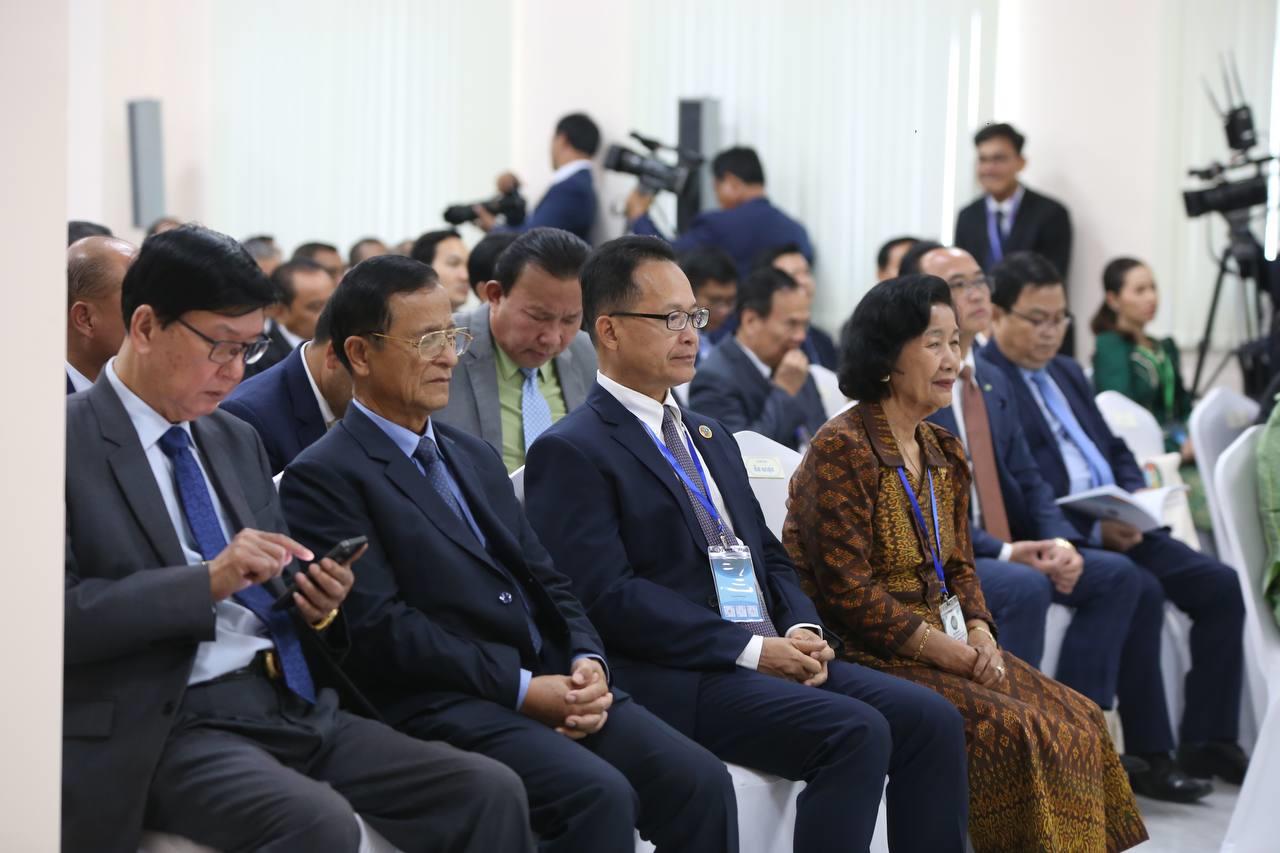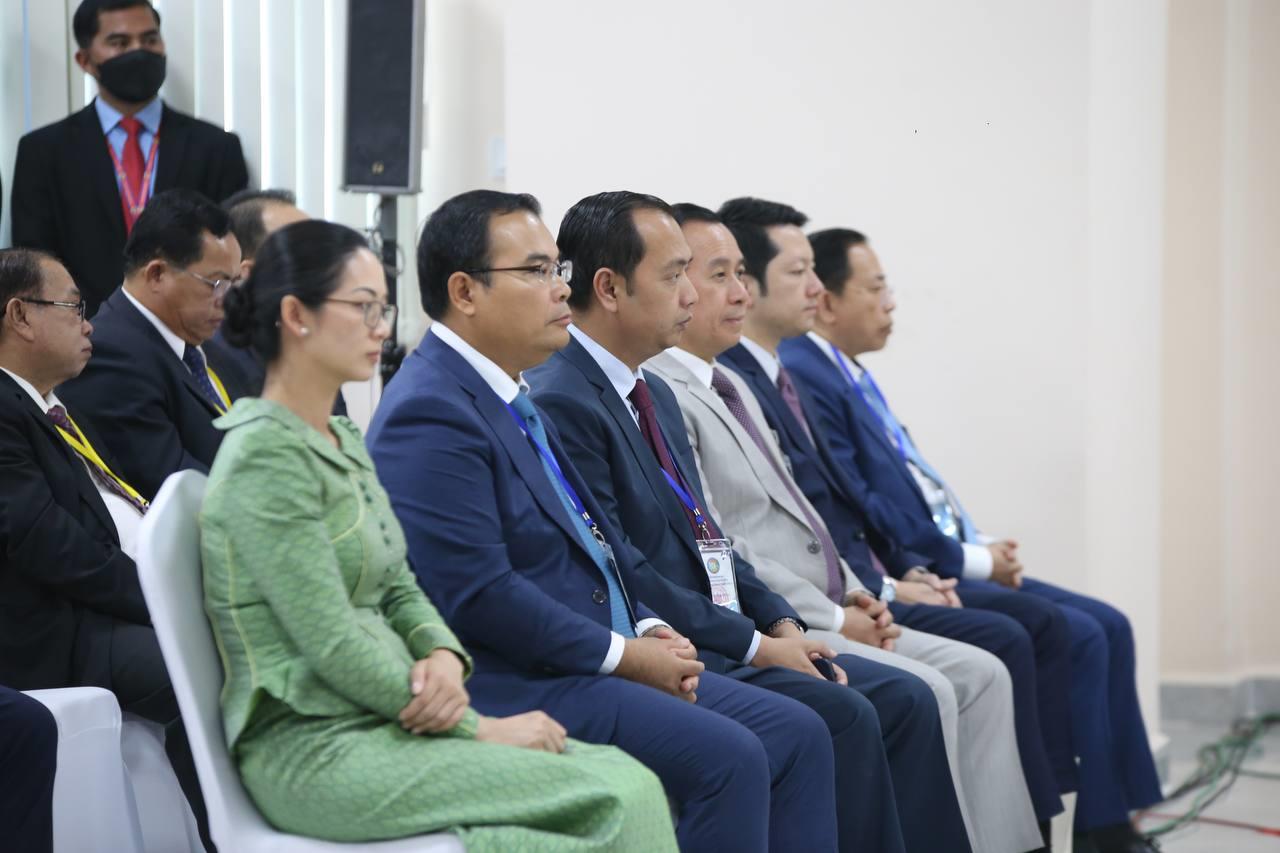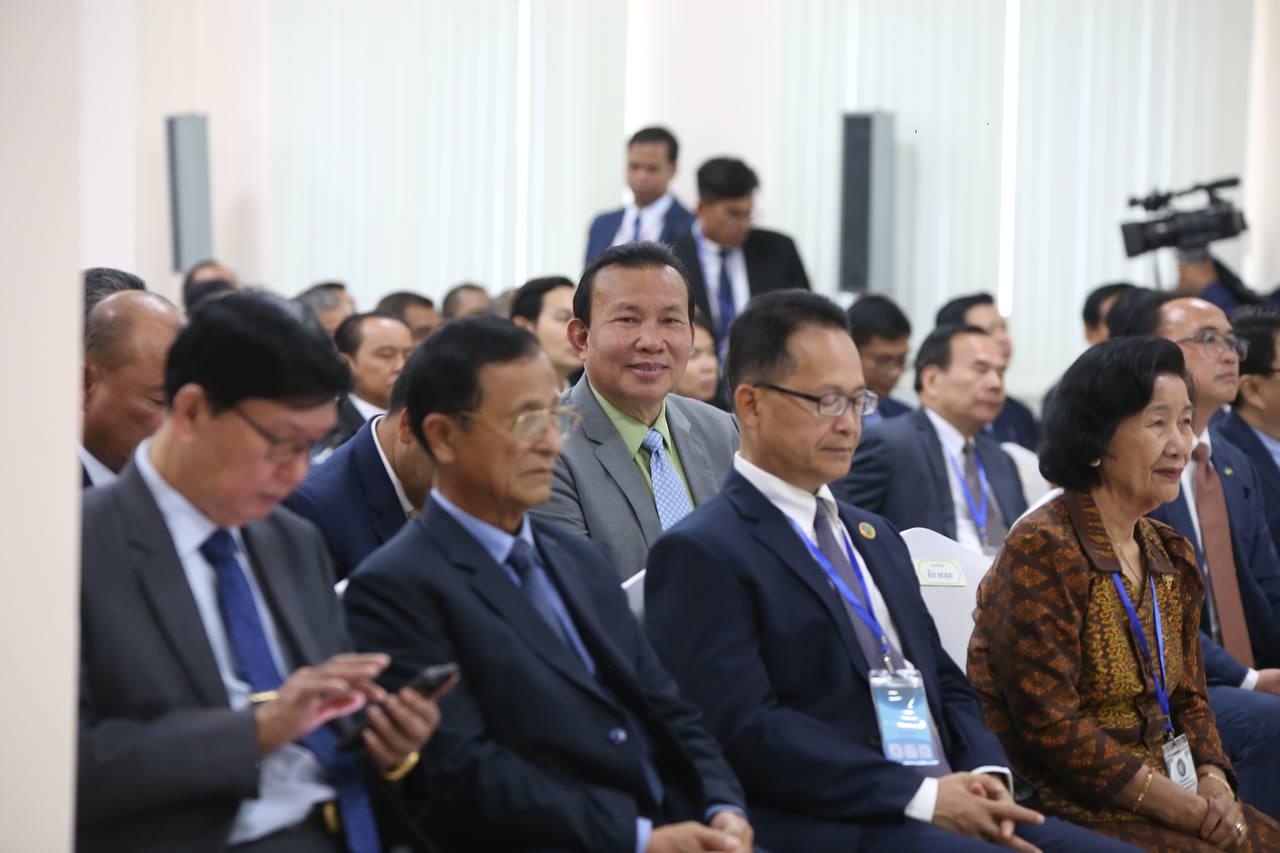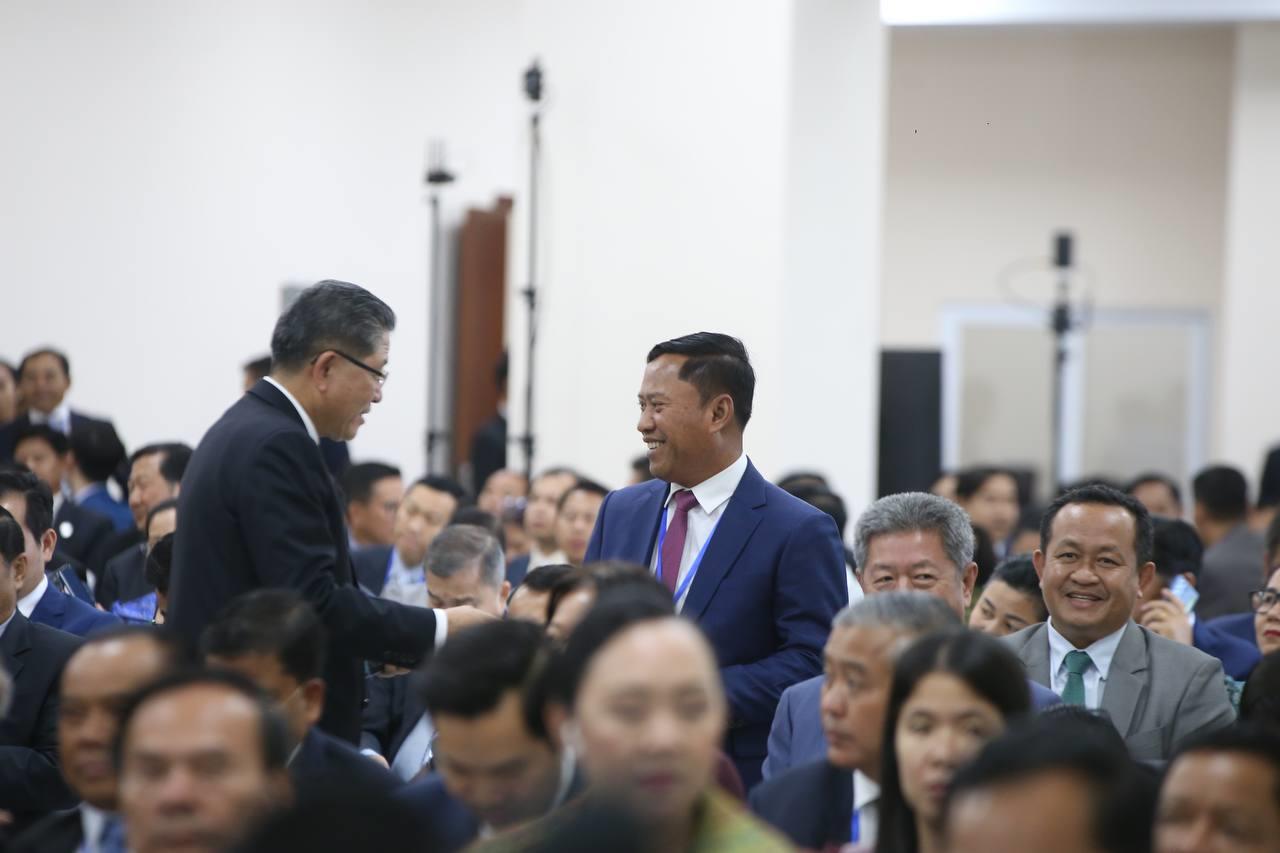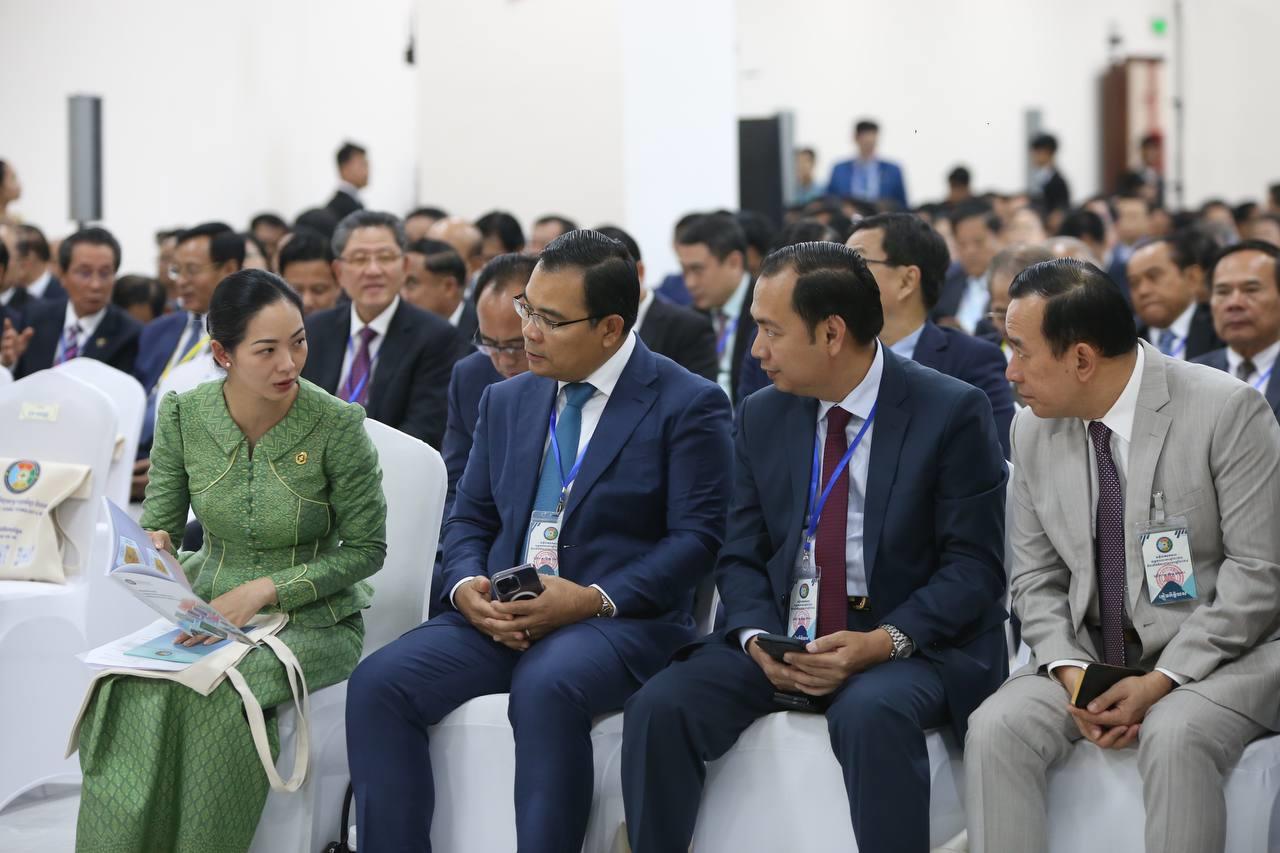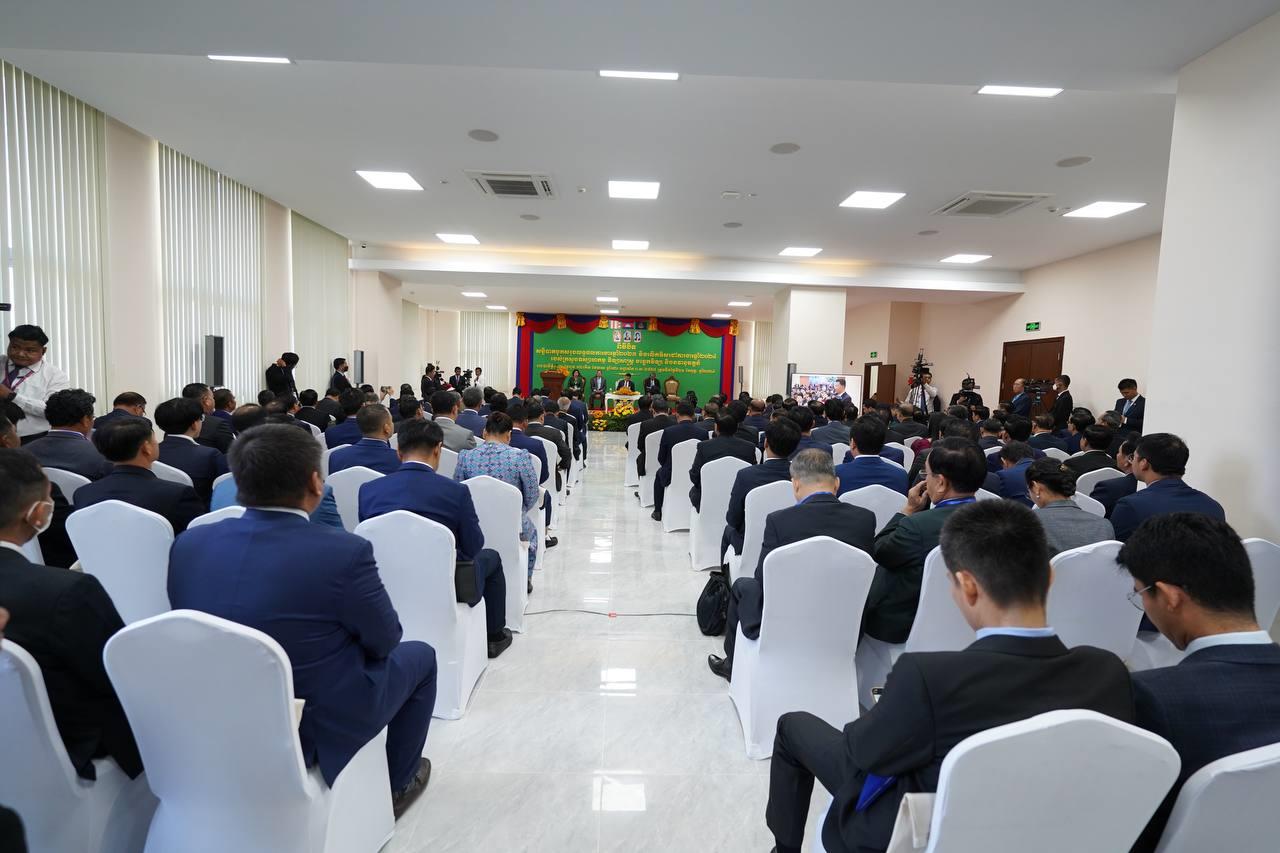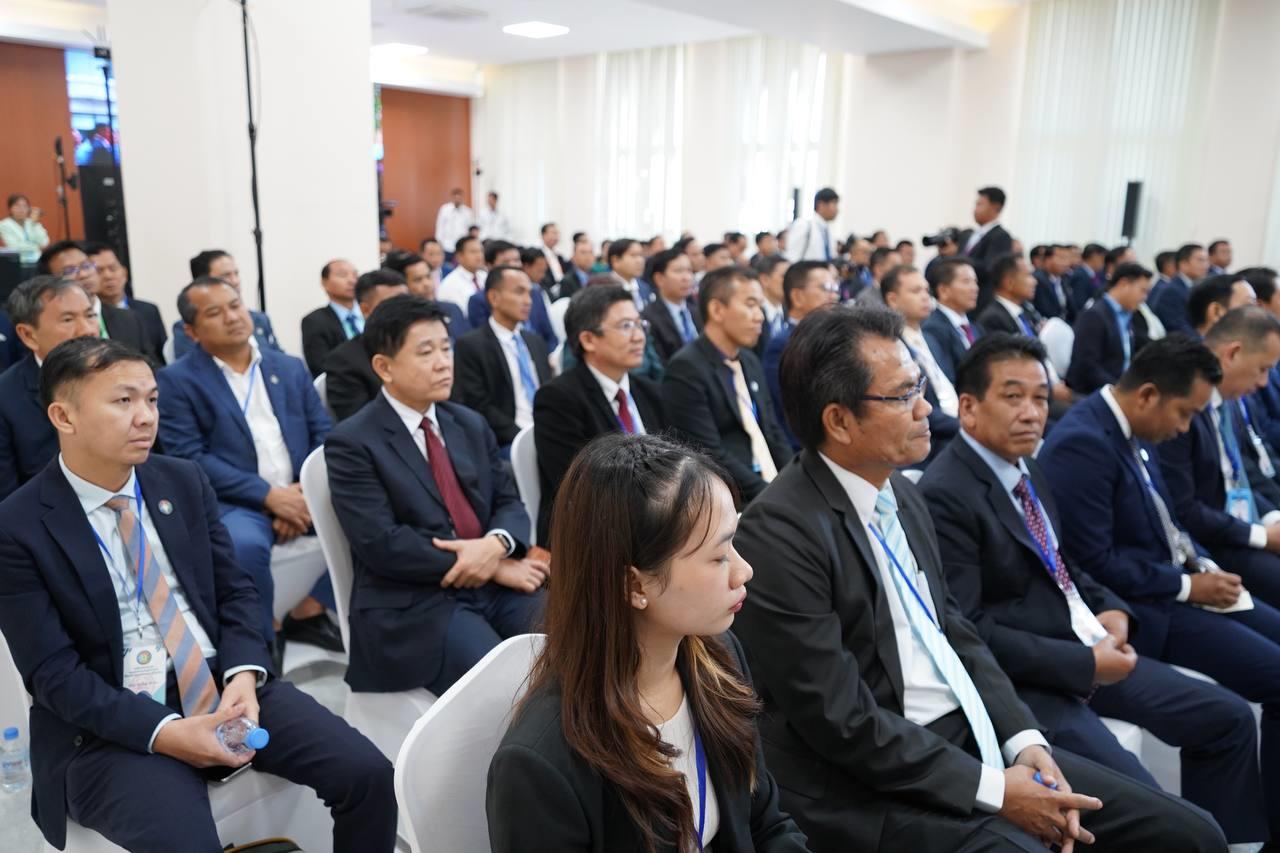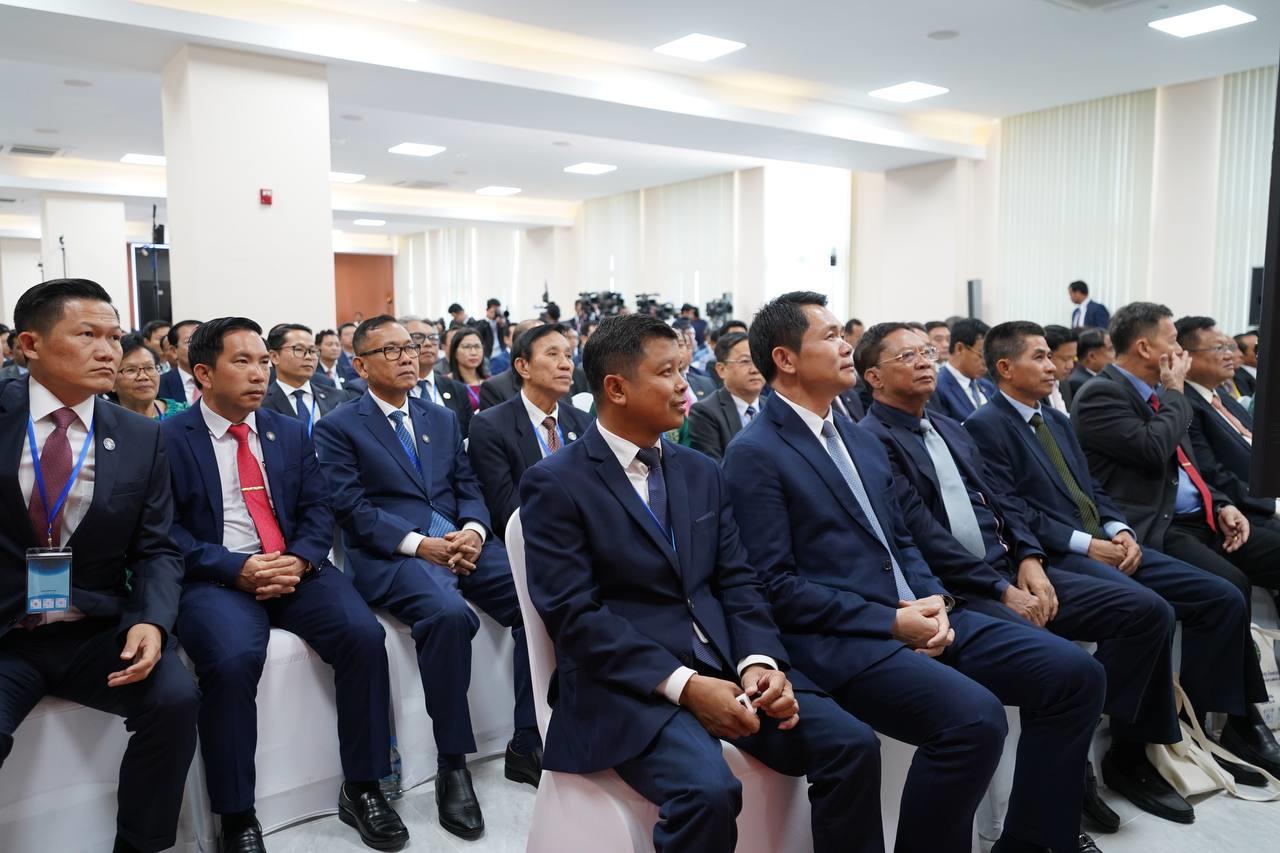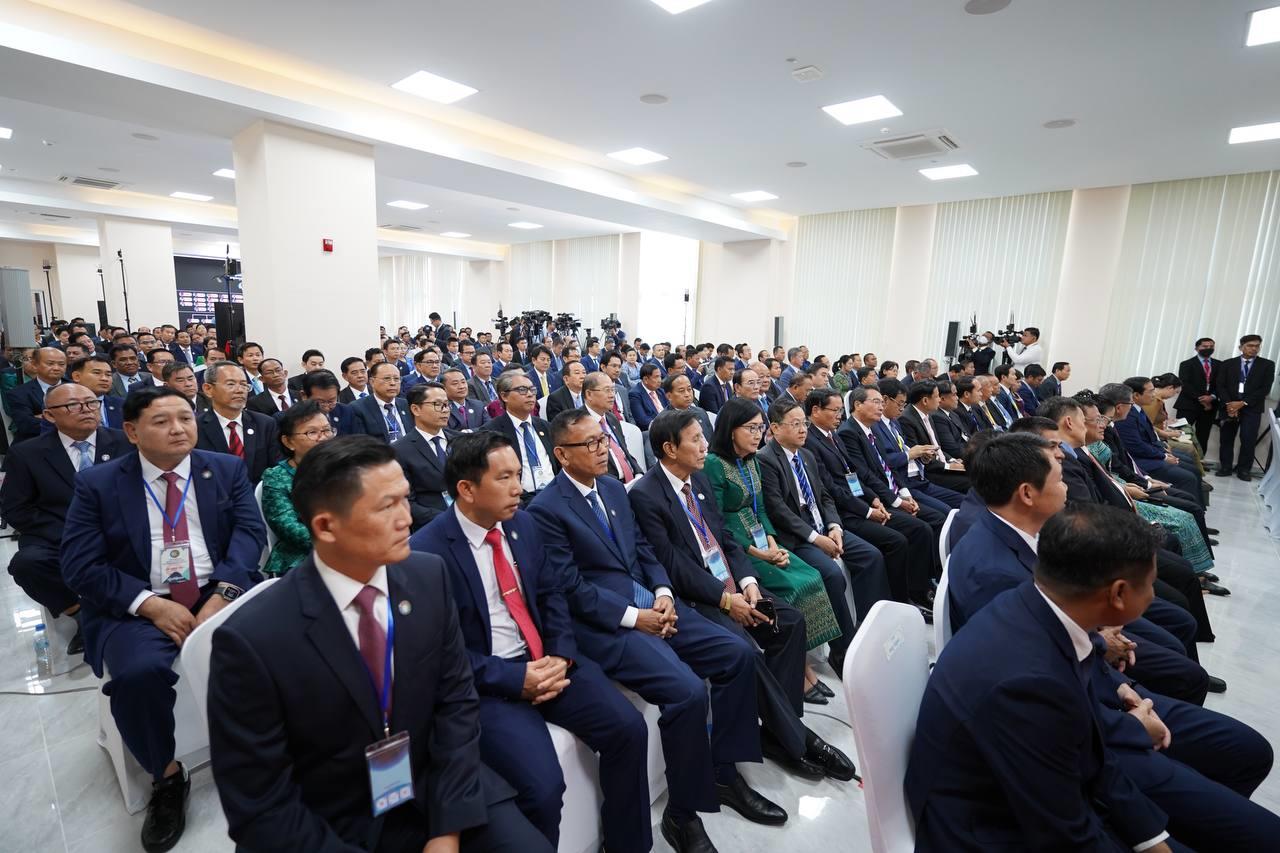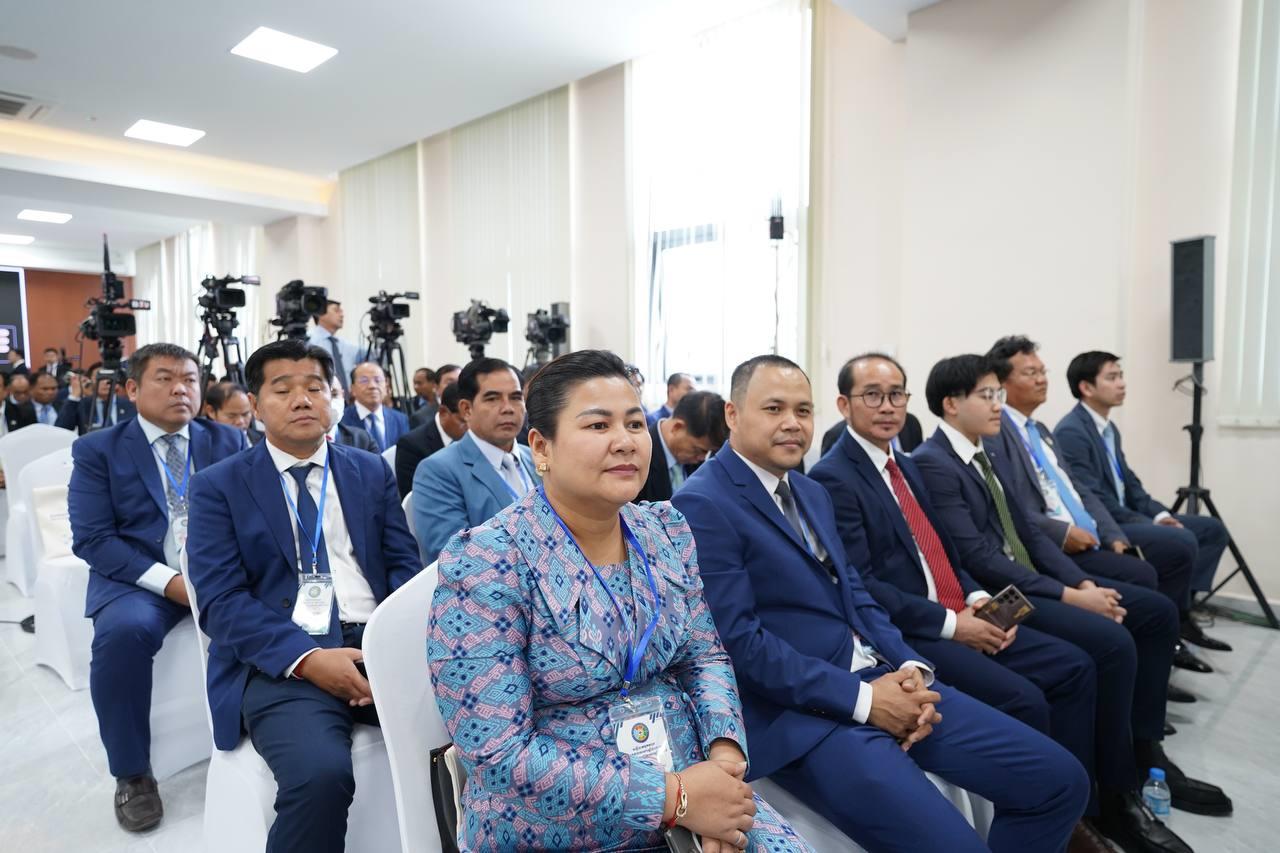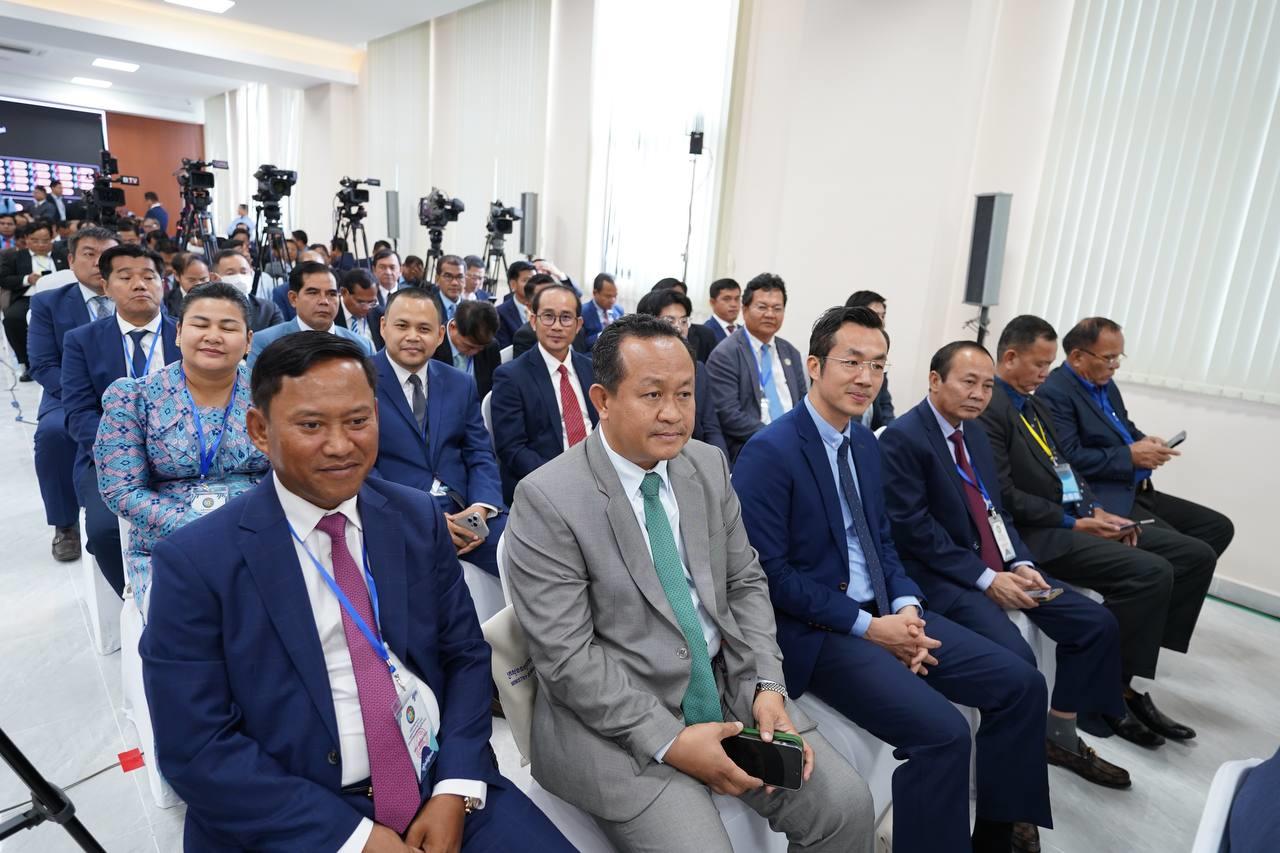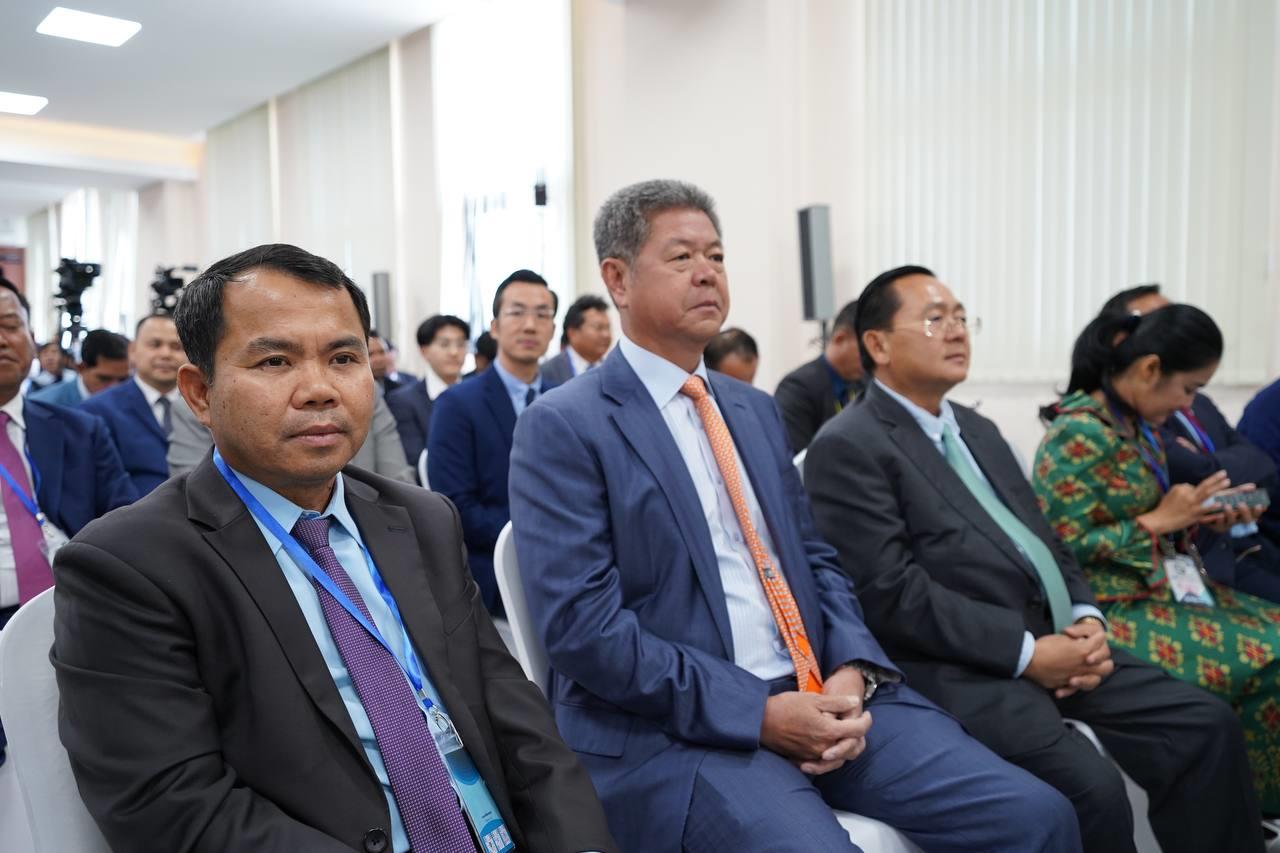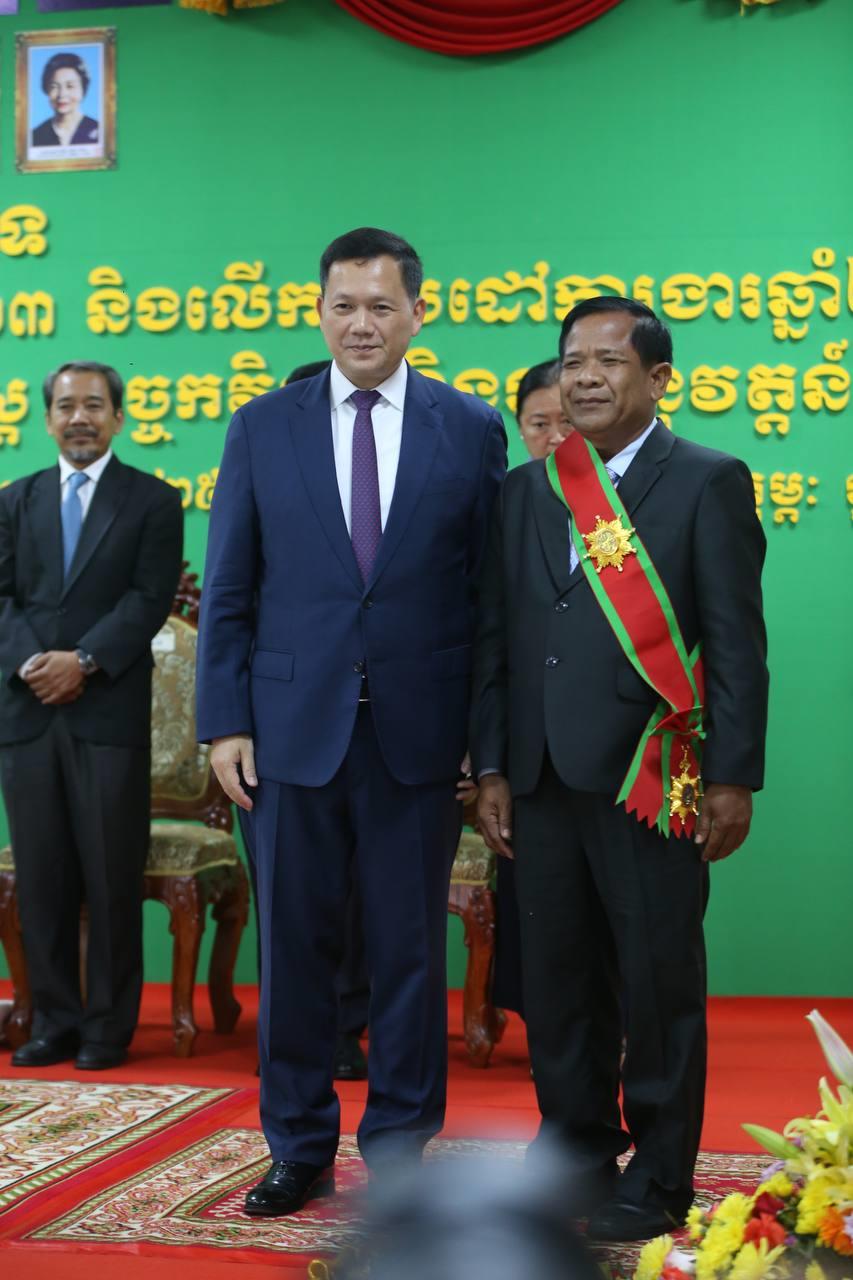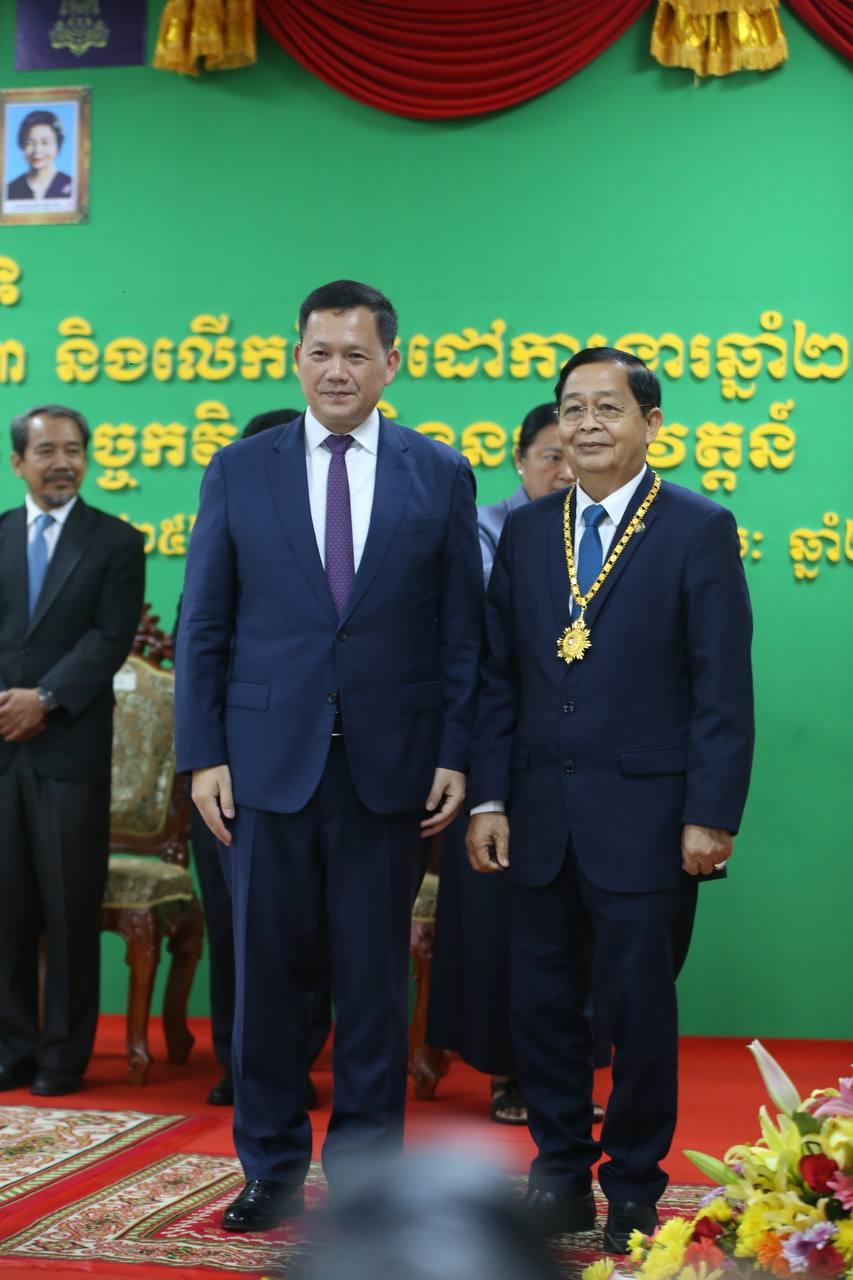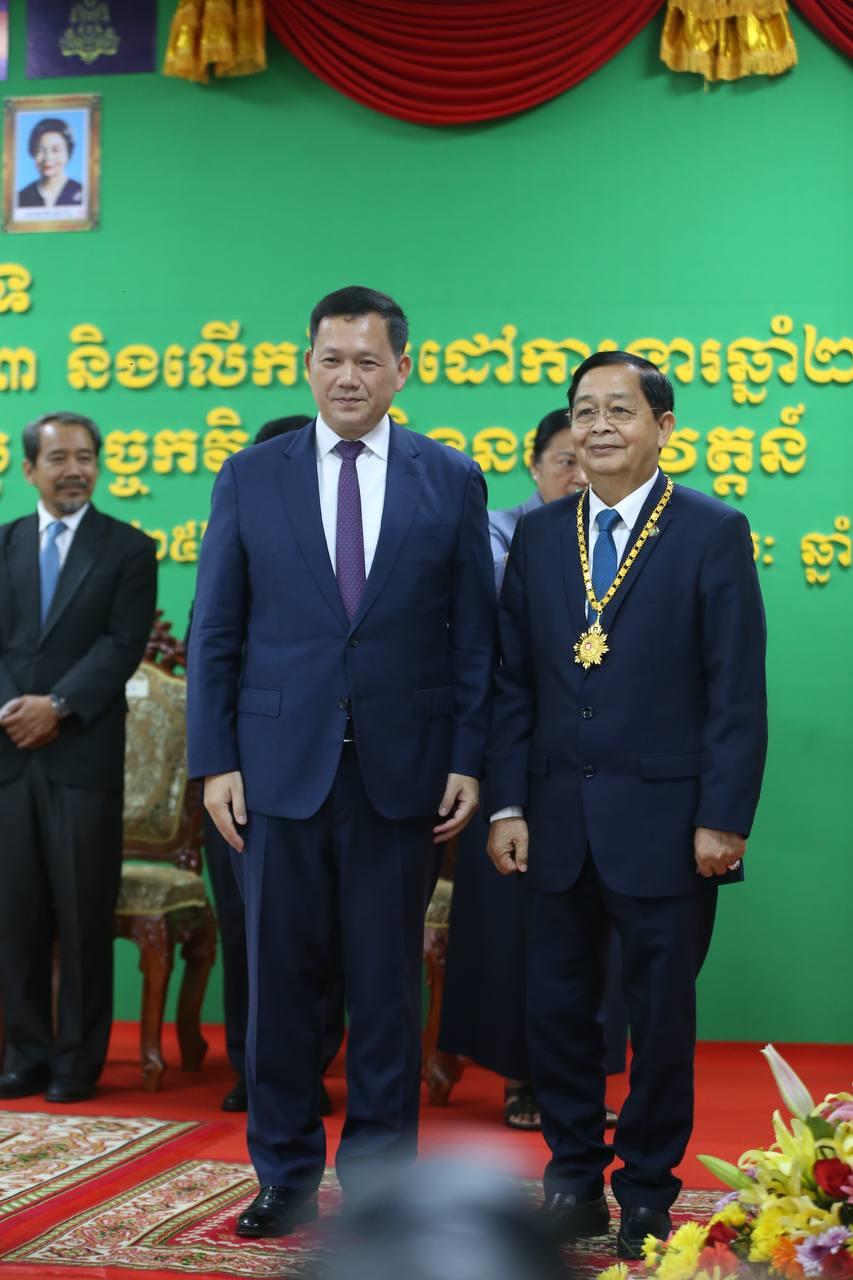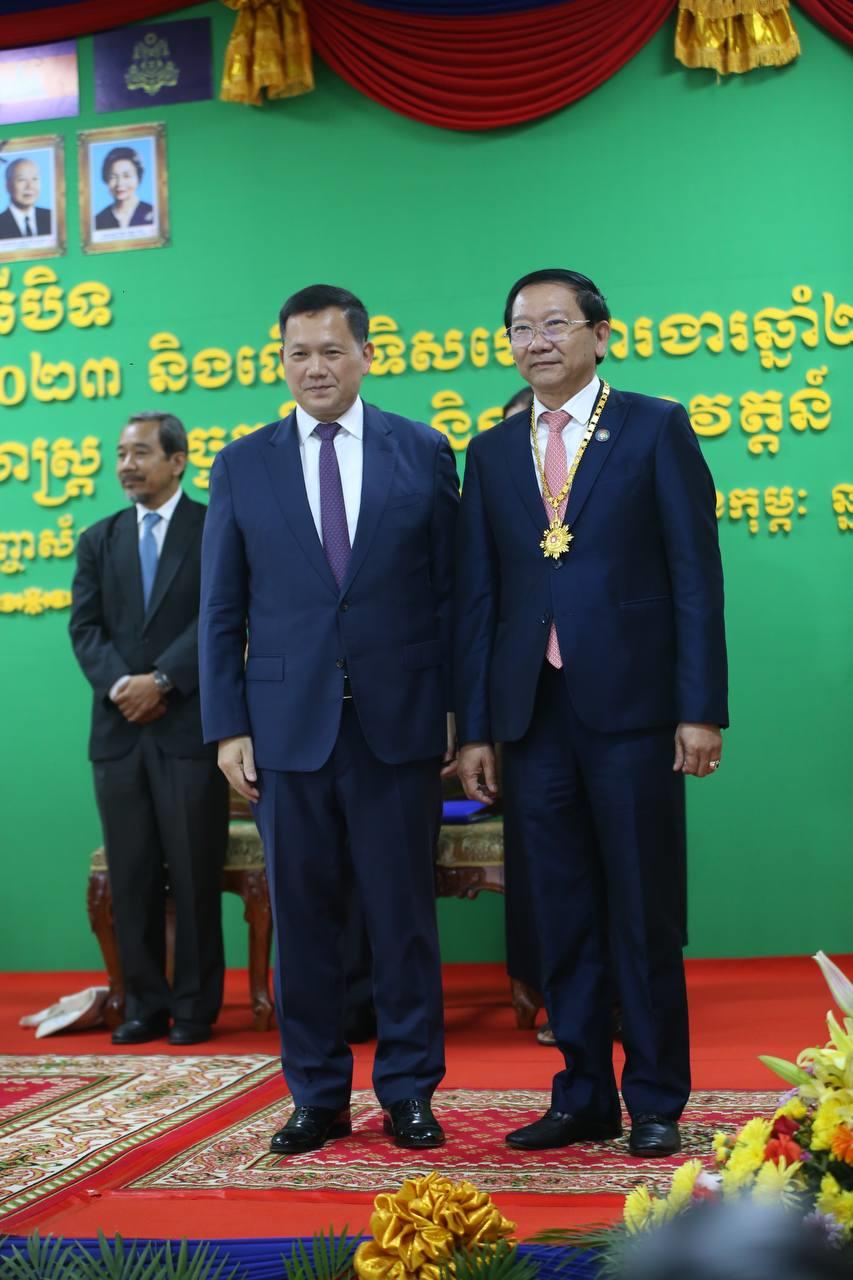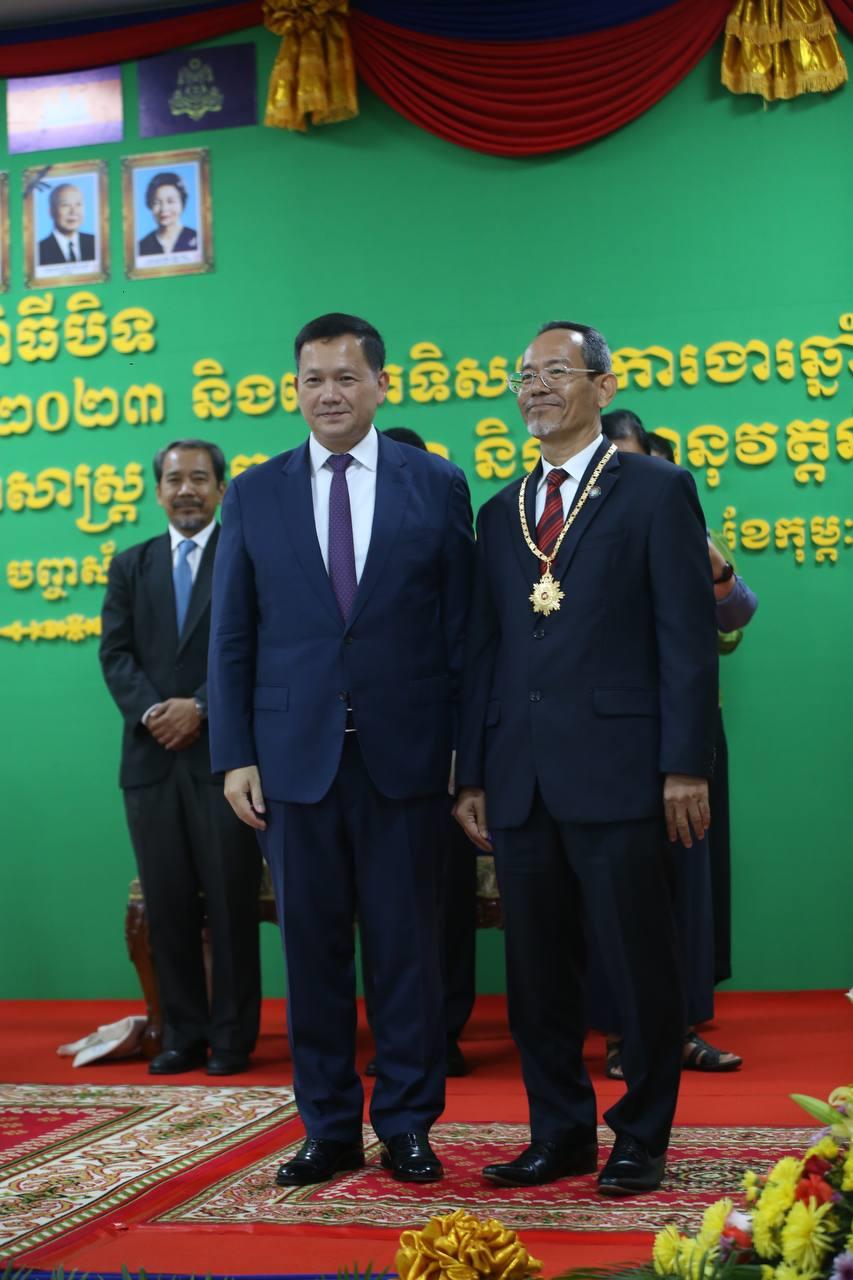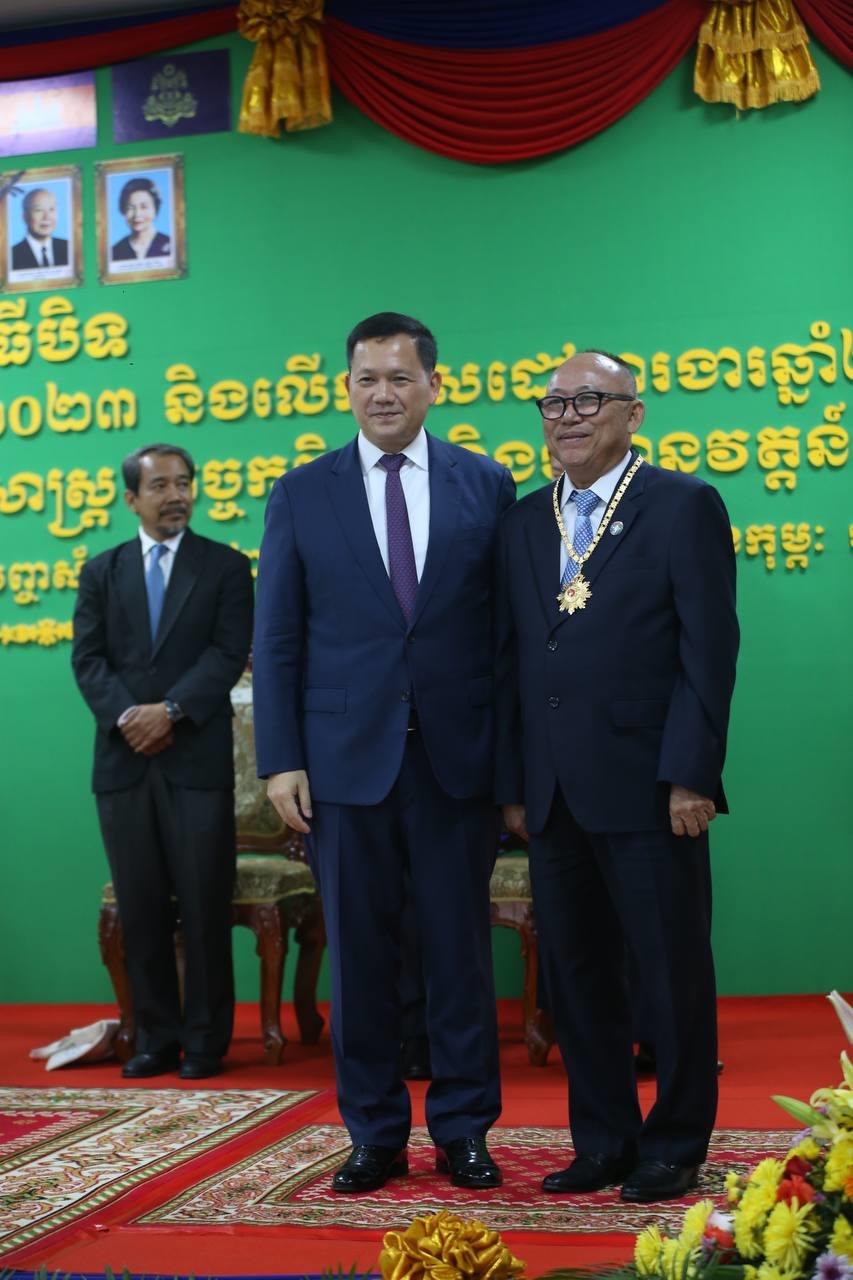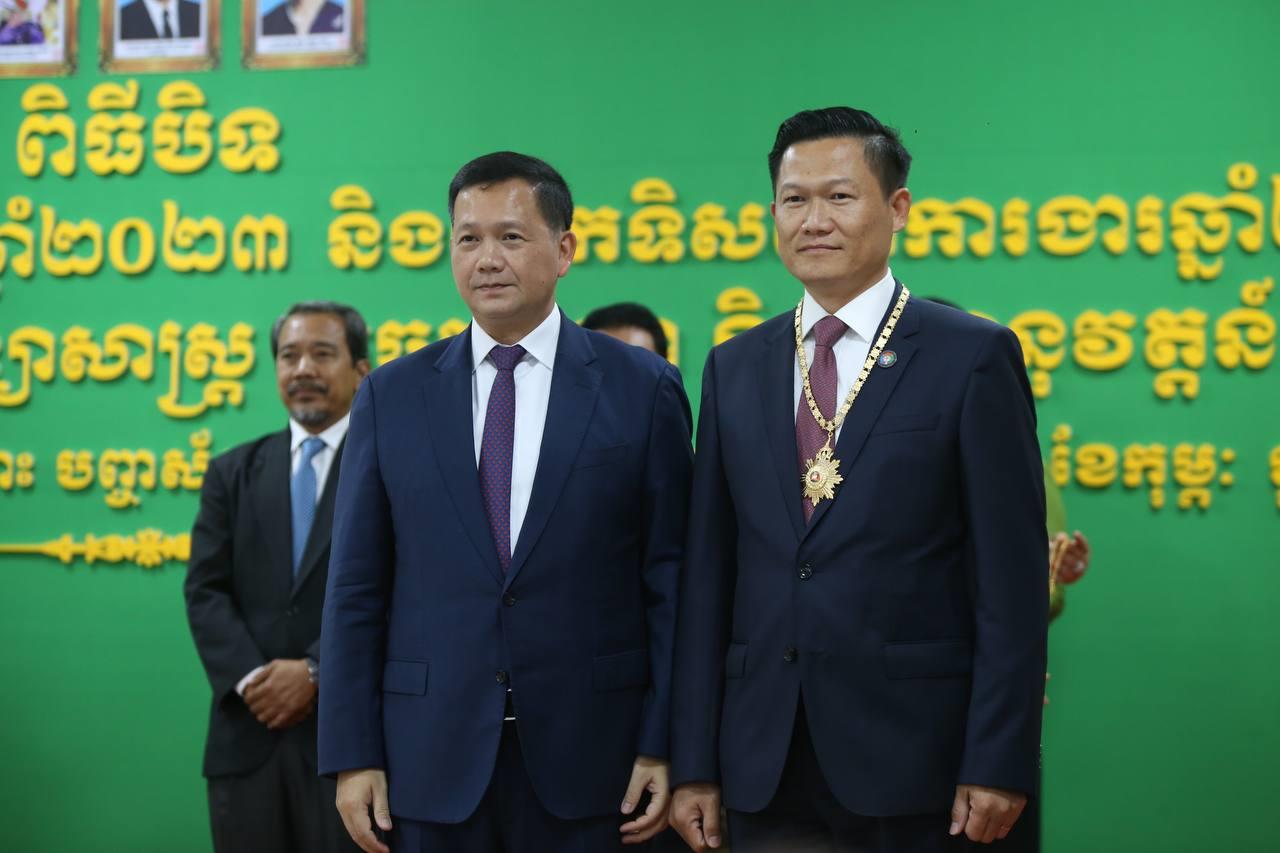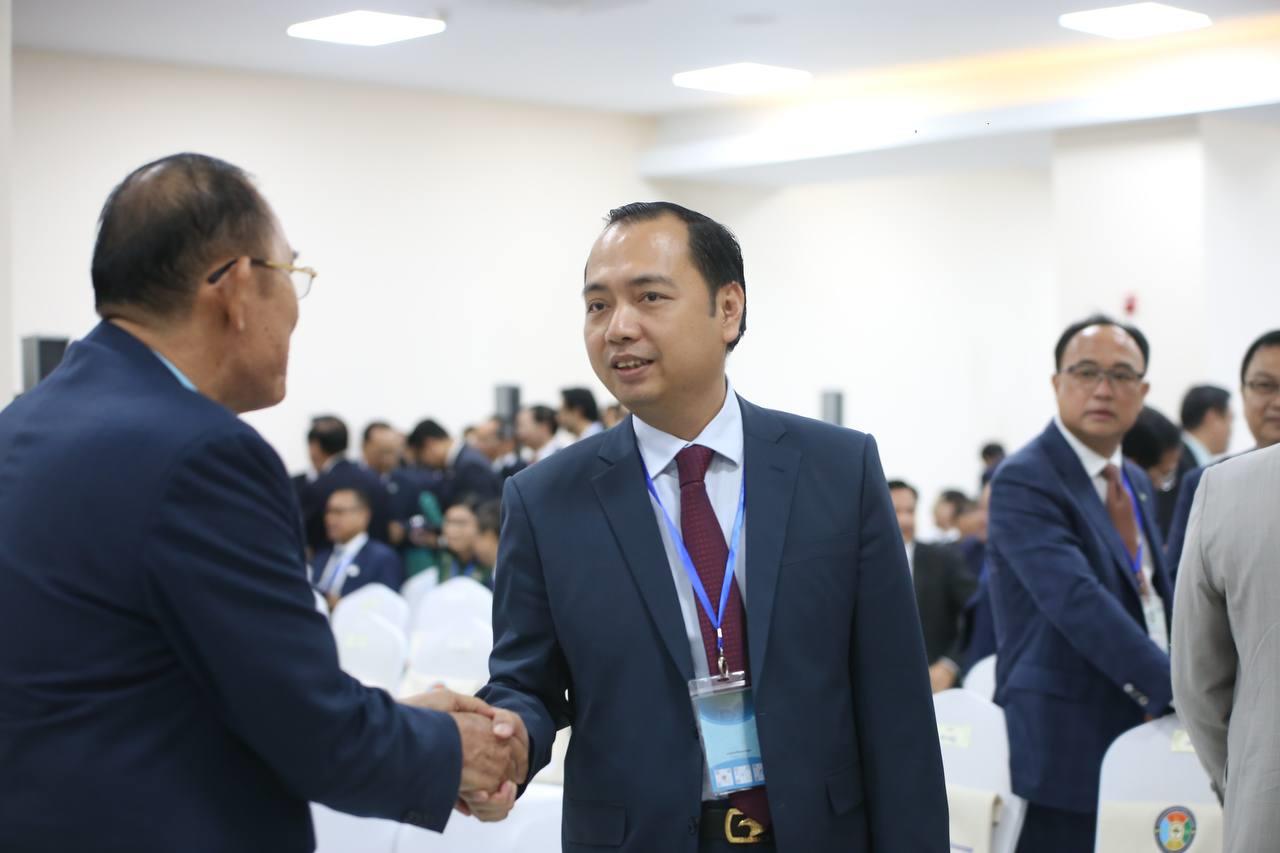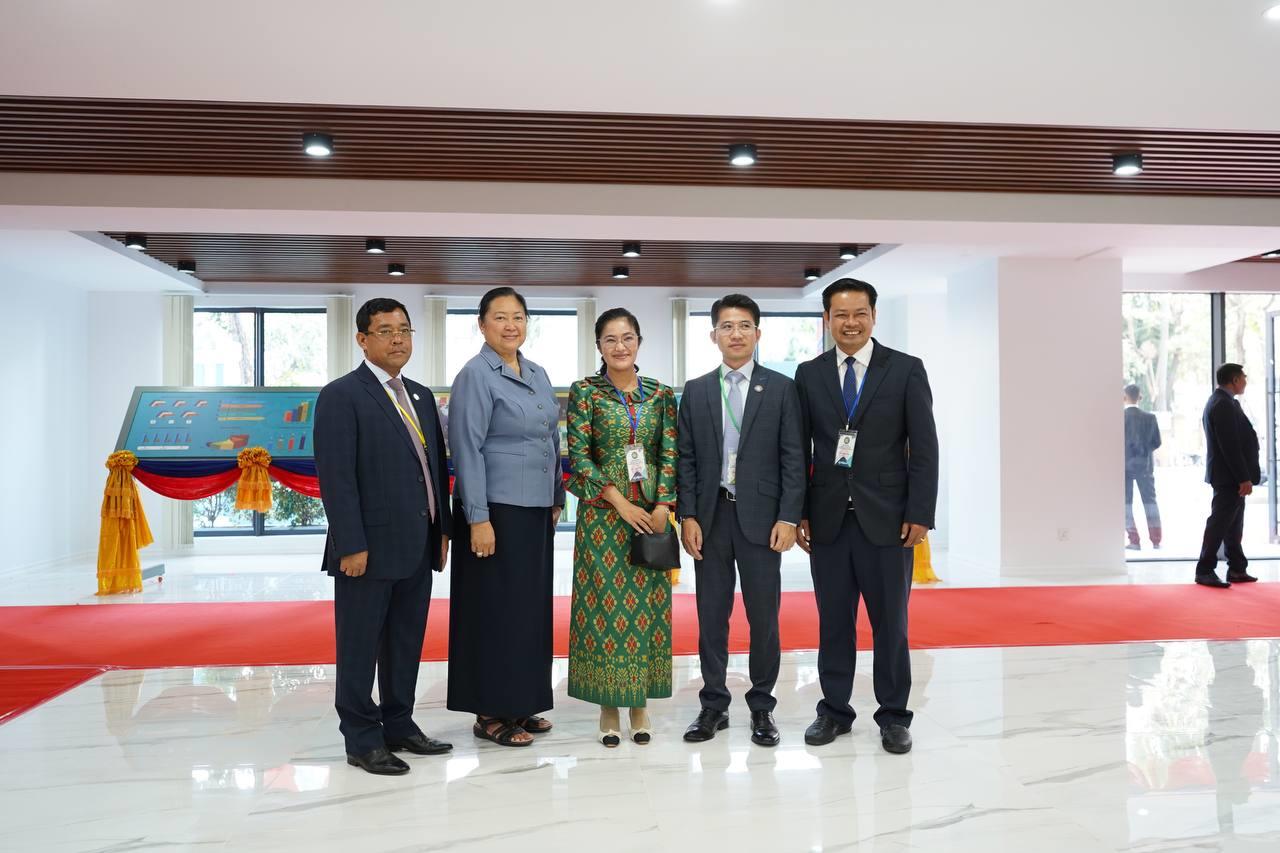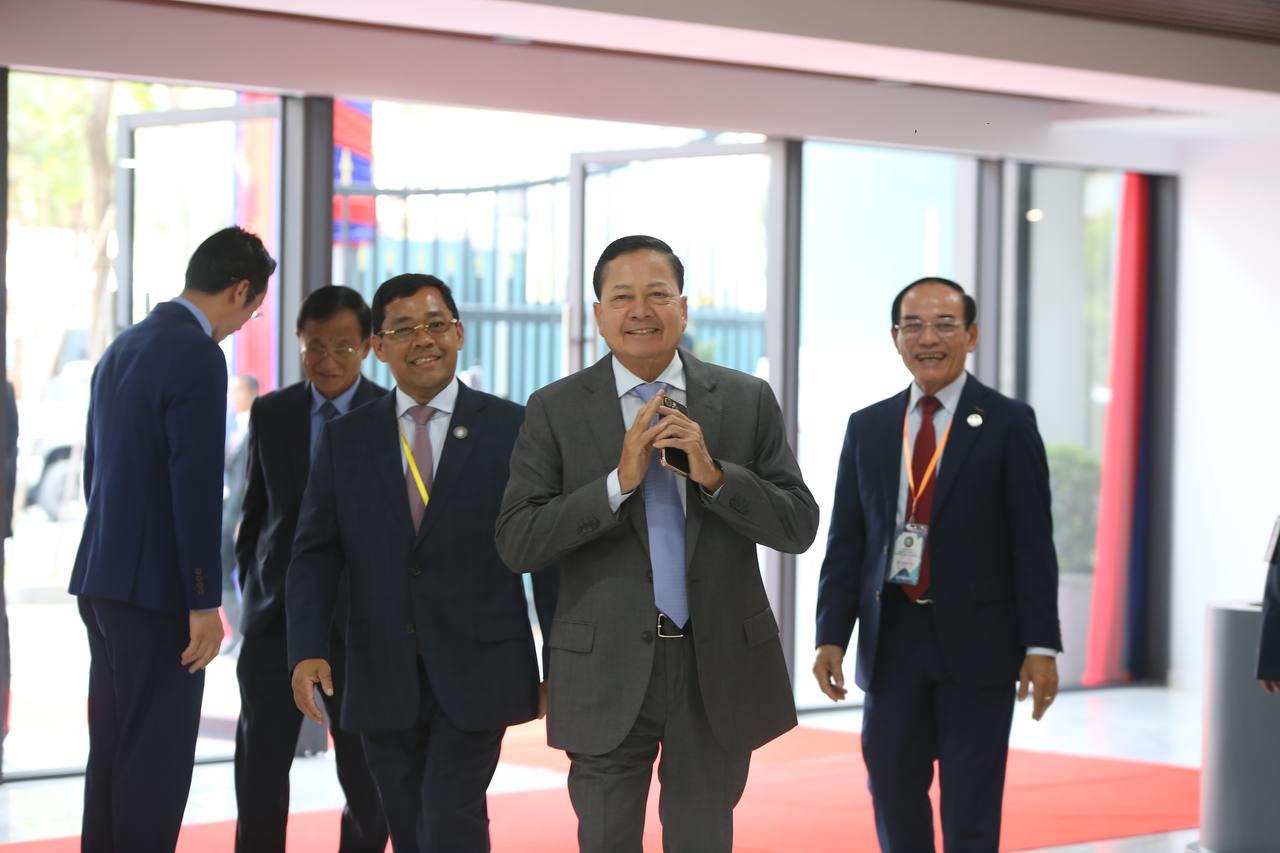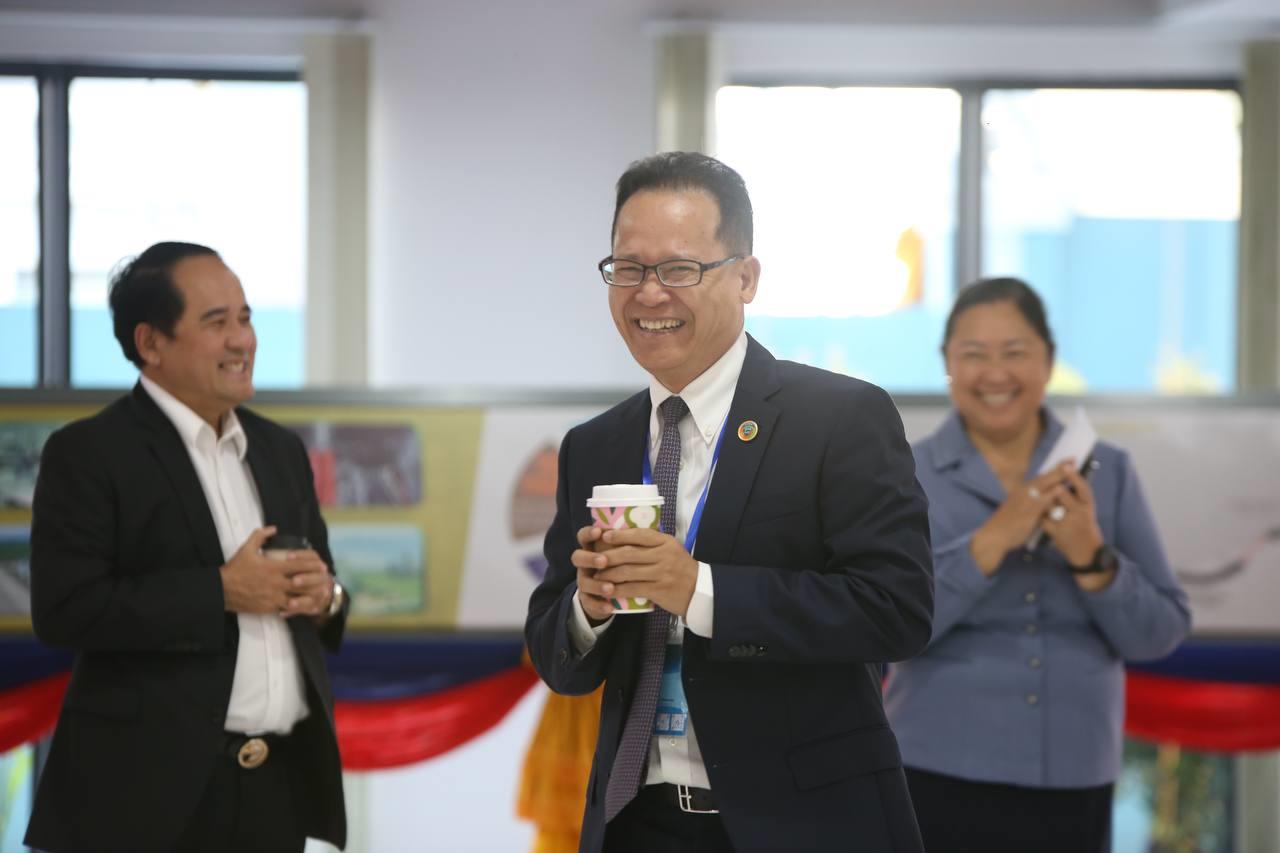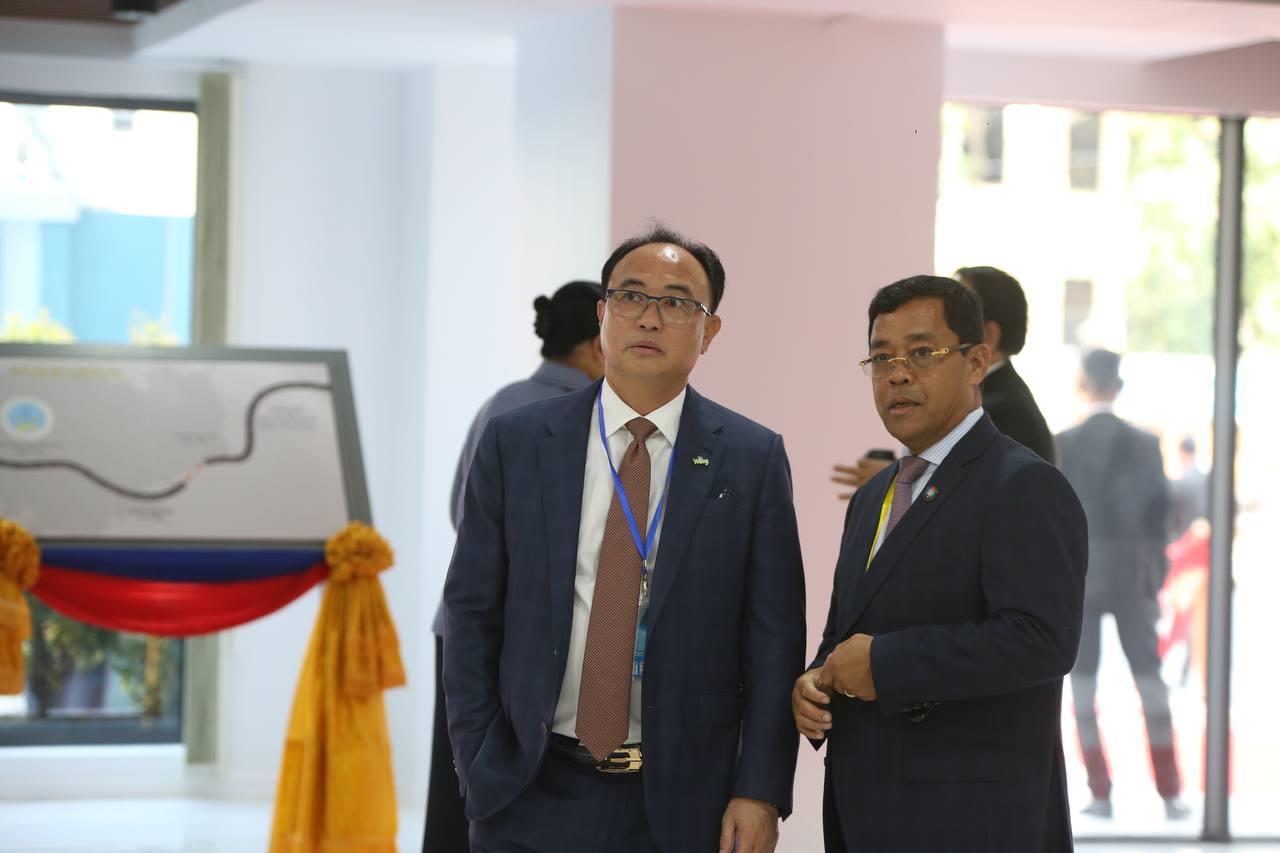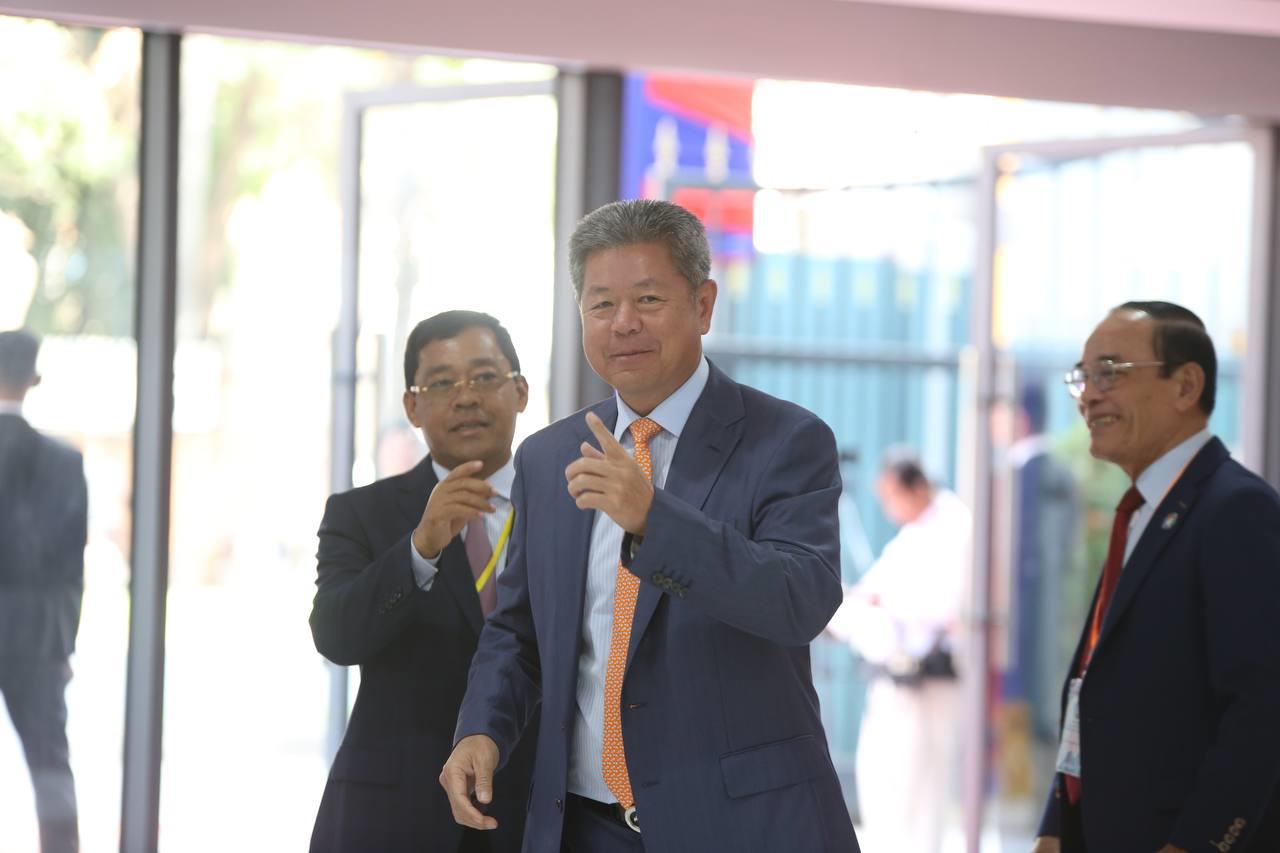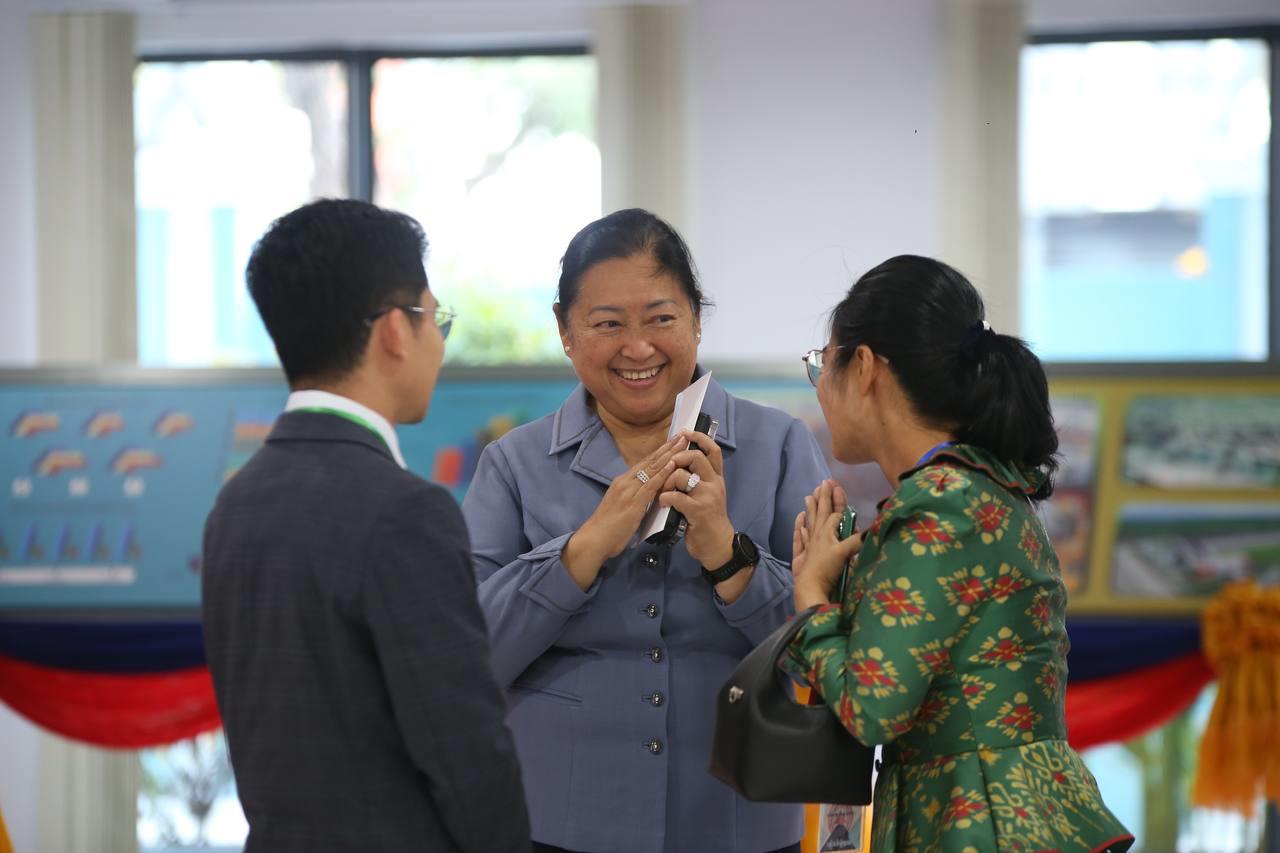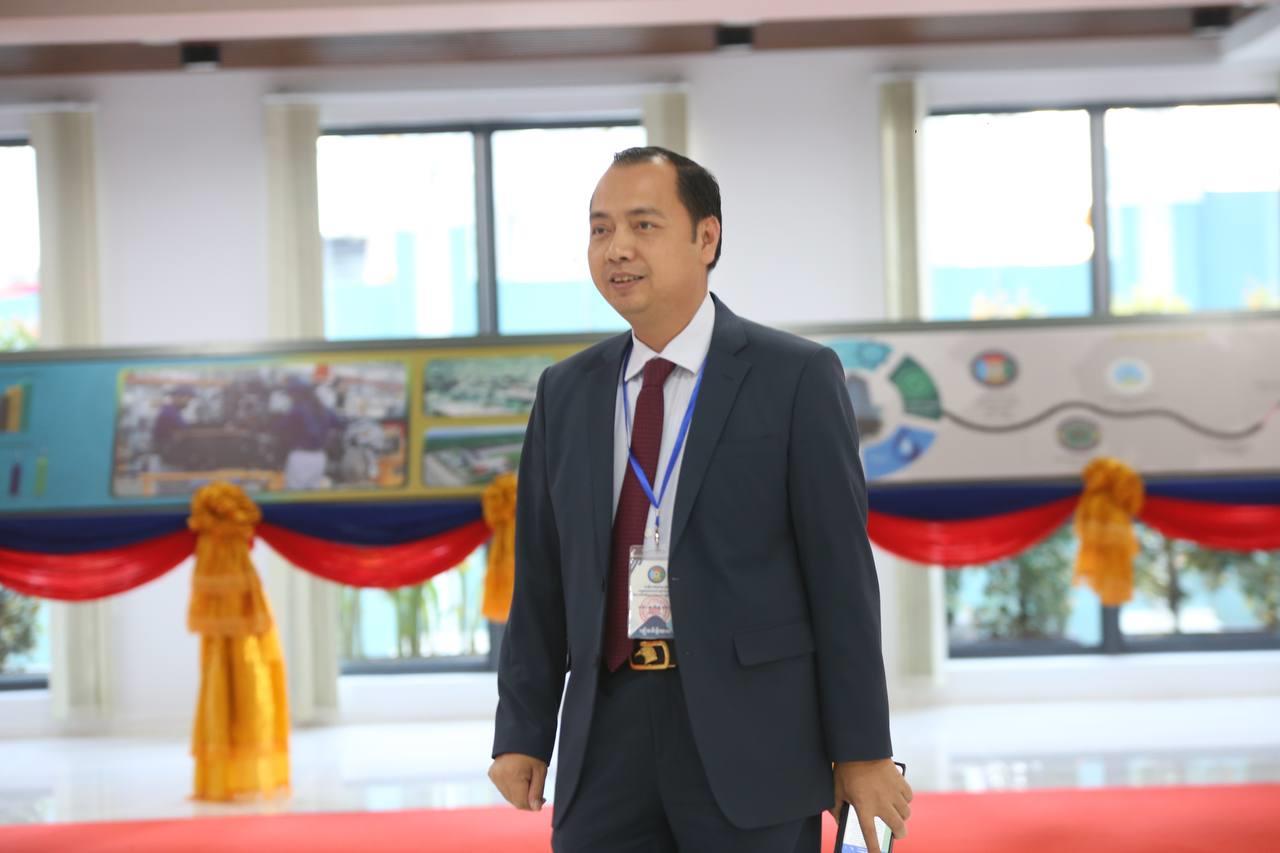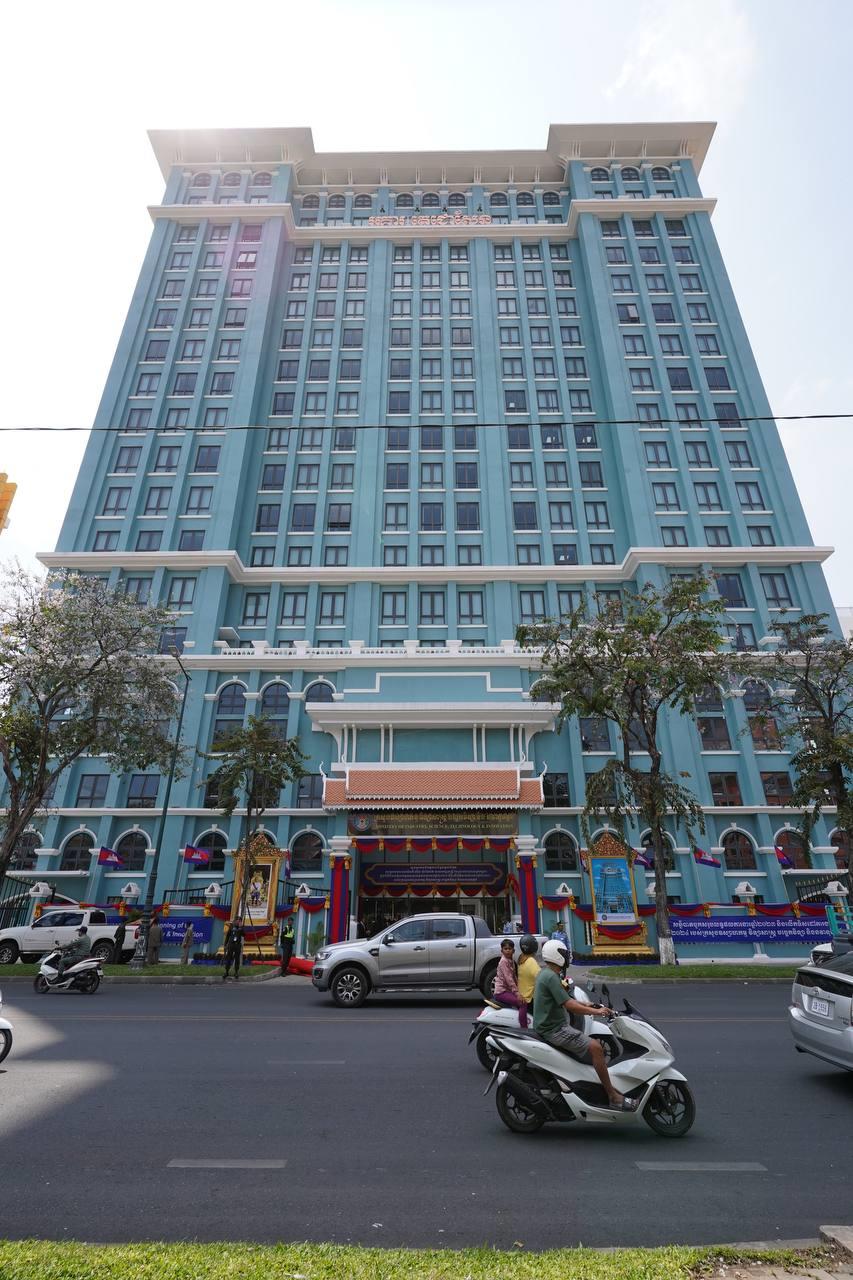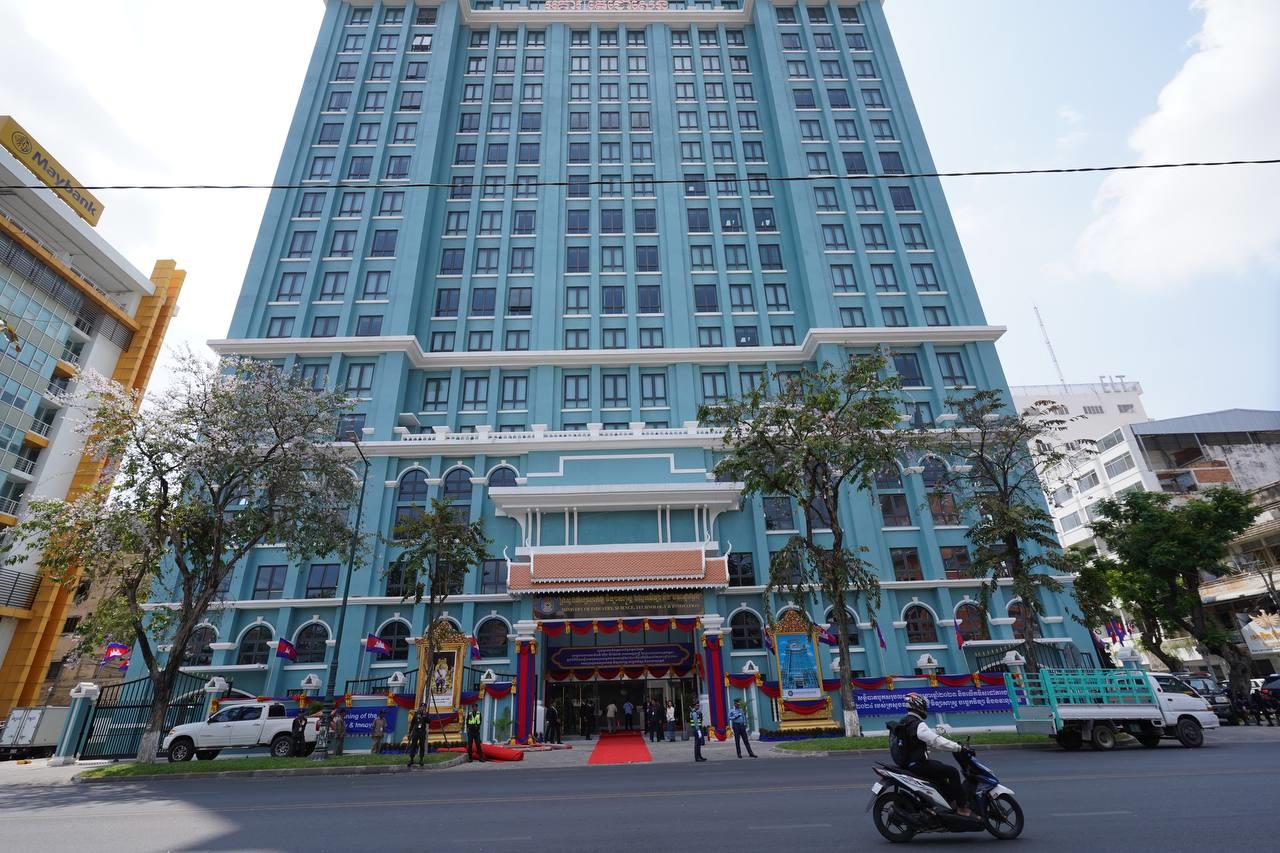Phnom Penh (FN), Feb. 21 – Cambodian Prime Minister Hun Manet issued 13 recommendations to promote effective participation of the Royal Government in implementing policies, accountability and ownership.
The premier spoke on Wednesday (Feb. 21) at the 2023 annual meeting of the Ministry of Industry, Science, Technology & Innovation (MISTI) at the Ministry.
Samdech Thipadei underlined that the Royal Government remains committed to enhancing the living standards and well-being of the Cambodian people. This commitment involves fostering competition in priority sectors to ensure dignity, equity, and fairness, thereby bolstering competitiveness, efficiency, environmental sustainability, and social progress.
The Royal Government is actively monitoring and evaluating the progress of implementing the "Cambodia Industrial Development Policy 2015-2025" while considering updates to align with evolving needs. These updates aim to introduce strategies and policies to transition Cambodia's industry from labor-intensive to skill-based.
In addition, in the seventh-mandate, the Royal Government prioritizes the promotion of small and medium enterprises (SMEs), handicrafts, and the informal economy. Several policy measures have been introduced, particularly within the Pentagon Strategy-Phase I, to support this objective.
To ensure effective implementation, responsibility, and ownership of policies, Samdech Thipadei proposed recommendations to the Ministry of Industry, Science, Technology, and Innovation for further action. These recommendations aim to strengthen the Royal Government's involvement in policy implementation and oversight include as follow:
1. To expedite Cambodia's industrial transformation from labour-intensive to skill and knowledge-based industries by integrating into the global value chain, joining regional production networks, and fostering cellular production expressions. This initiative aims to boost industrial productivity, enhance occupational and environmental safety, and evaluate the competency of the compliance assessment unit to bolster Cambodia's regional and global competitiveness. Furthermore, the premier supported the Ministry's initiative to establish an alliance of national laboratories to complement each other and create a National Quality Infrastructure ecosystem supporting businesses in Cambodia. He also encouraged national laboratories to collaborate and enhance their capabilities.
2. The registration for CamDX automation must be completed by the end of 2024. Additionally, the capacity of professional officers overseeing this process should be strengthened, and efforts to promote the benefits of online registration should be intensified. Furthermore, it's essential to prepare factory location data using the Geographic Information System (GIS) for accurate management. Moreover, collaborative efforts should focus on leveraging industrial partnerships, enhancing technical skills in vehicles, electric vehicles, and electronics, with a particular emphasis on installation, assembly, or semi-production.
3. To spearhead and promote increased production and productivity in local industries, especially in raw materials and semi-finished products sourced locally. This initiative aims to establish a supply chain that reduces dependence on imports, adds significant value, and generates employment opportunities for local producers and processors.
4. Participate in researching potential resources for agro-industrial development and assess the feasibility of establishing a national industrial park. This park aims to streamline customs, taxation, environmental, trade, service, logistics, and related procedures. Furthermore, efforts should continue to promote the establishment of Small and Medium Enterprise (SME) clusters, focusing on technology fields to foster collaboration and support among SMEs and Foreign Direct Investment (FDI). Additionally, the feasibility of utilizing the existing budget of the Small and Medium Enterprise Bank of Cambodia should be examined to facilitate easier access to larger and longer-term loans for SMEs.
5. Accelerate the preparation of drafts for the law on technology transfer, sub-decrees on the establishment and management of SME concentration zones, the establishment of the Union of Small and Medium Enterprises Associations of Cambodia, and sub-decrees on research and development.
6. Explore the possibility of participating in establishing a "Centre for Supporting Businesses and SMEs in Digital Innovation" to foster entrepreneurial mindsets and promote the adoption of digital technologies in business. Additionally, efforts should continue to expand the role of Cambodian entrepreneurs in catalysing the entrepreneurial ecosystem and supporting the creation and development of new sectors.
7. Prioritize the management and conservation of salt farmland in Kampot-Kep, promoting salt production as a strategic commodity, and addressing issues with non-viable salt farmland.
8. Collaborate with the Ministry of Industry, Science, Technology, and Innovation to ensure water supply meets quality, safety, sustainability, and affordability criteria. Additionally, expand piped water supply to urban and rural areas, enhance incentives for large or medium-sized water production investments, and implement a fair water pricing policy, prioritizing access for the impoverished.
9. Promote the development and adoption of new standards for export to international markets and strengthen the certification and inspection system to meet international standards, ensuring safety, health, property, and environmental protection.
10. Develop a framework for human capital development in technology for the medium and long term, encourage ecosystems between youth, technological innovation, SMEs, and promote research and development. Furthermore, continue to focus on implementing the Cambodia Science, Technology and Innovation Roadmap 2030 and promoting the establishment of the Science, Technology and Innovation Park (STI Park), the Science Museum, and transforming Cambodia into the ASEAN Technology Transfer Hub.
11. Actively participate in government reform efforts, particularly digital government, human resource development, and institutional capacity building, based on meritocracy principles. Improve public service provision through information technology and access mechanisms, aiming for greater efficiency, transparency, accountability, and accessibility for citizens.
12. Strengthen the management of state assets and national budget revenue collection from public service provision, adhering to existing policies and regulations, including medium-term revenue collection strategies and public financial management reform programs.
13. Accelerate the preparation of detailed action plans and key indicators for implementing the National Strategy for Informal Economic Development 2023-2028. Collaborate closely with relevant ministries and institutions to provide active cooperation with the Ministry of Industry, Science, Technology, and Innovation. Timely input and preparedness for activities are essential to achieving the highest effectiveness.
=FRESH NEWS
